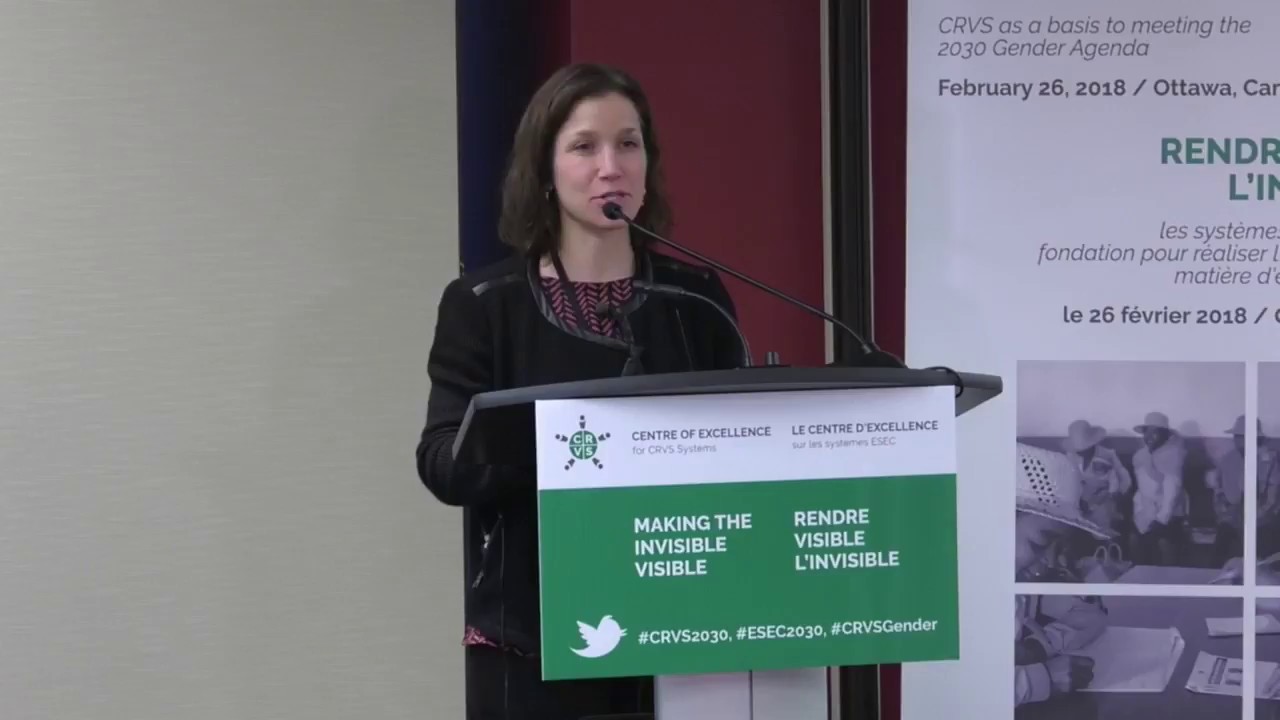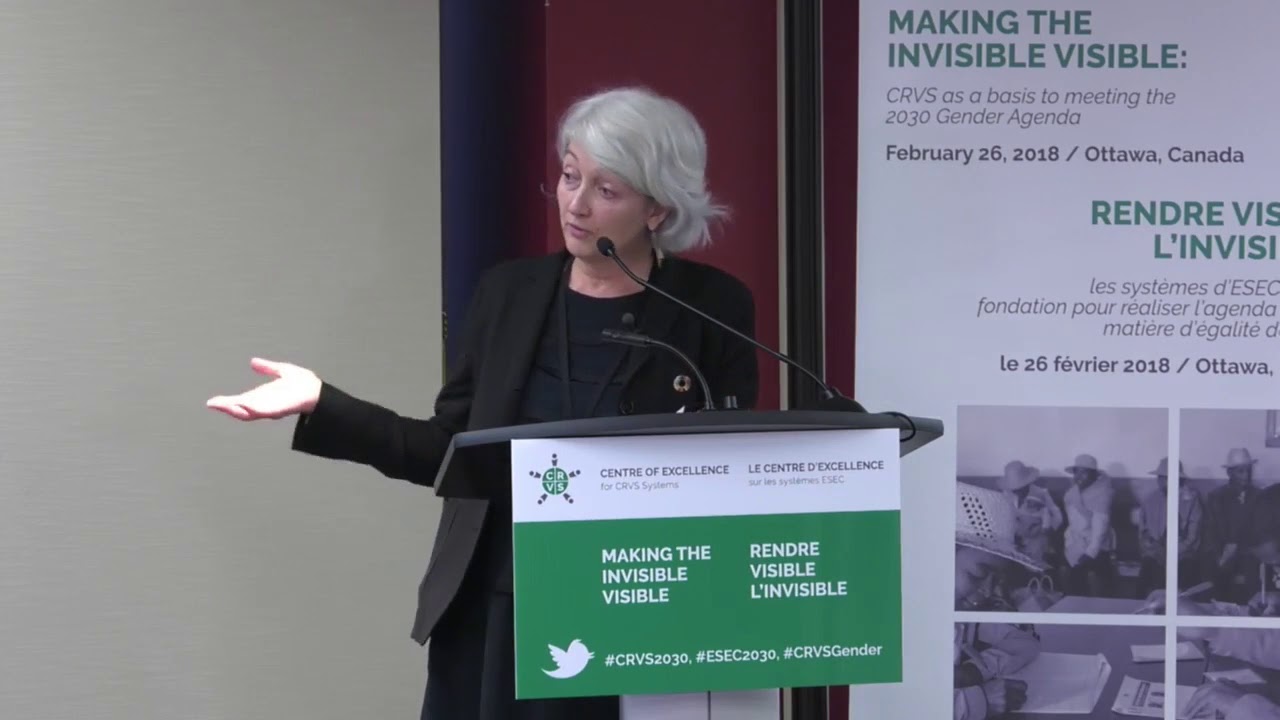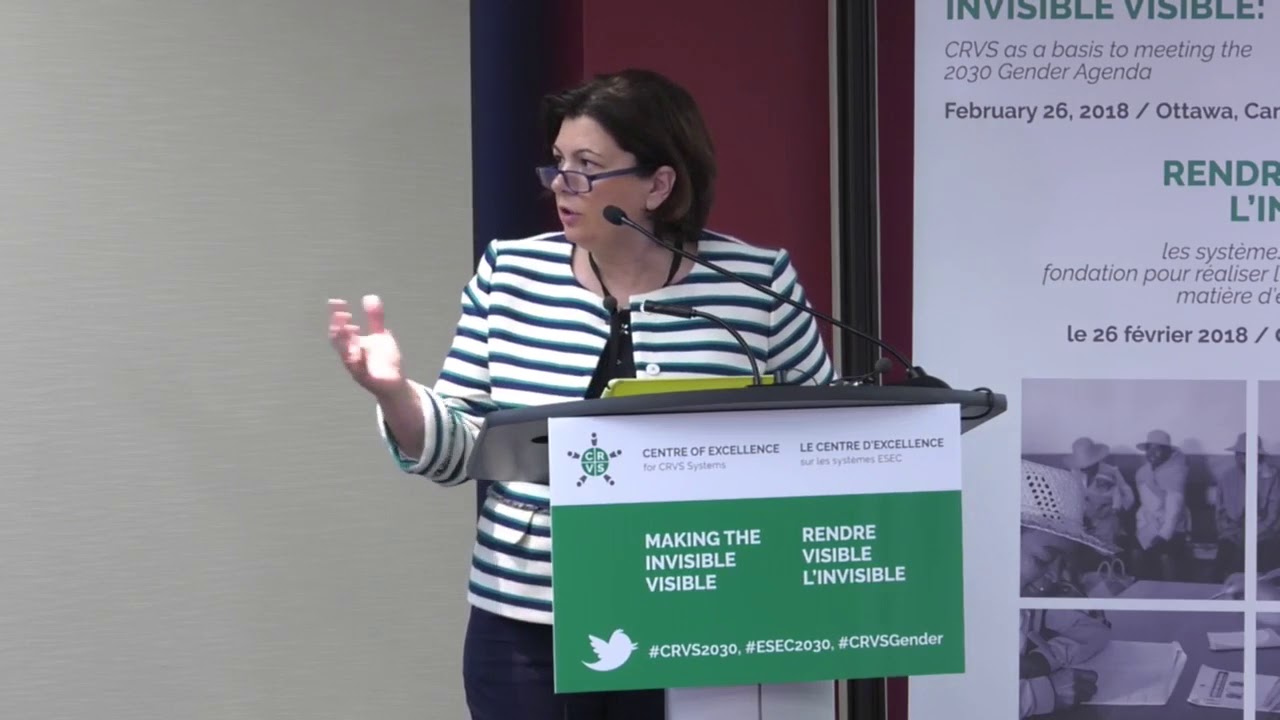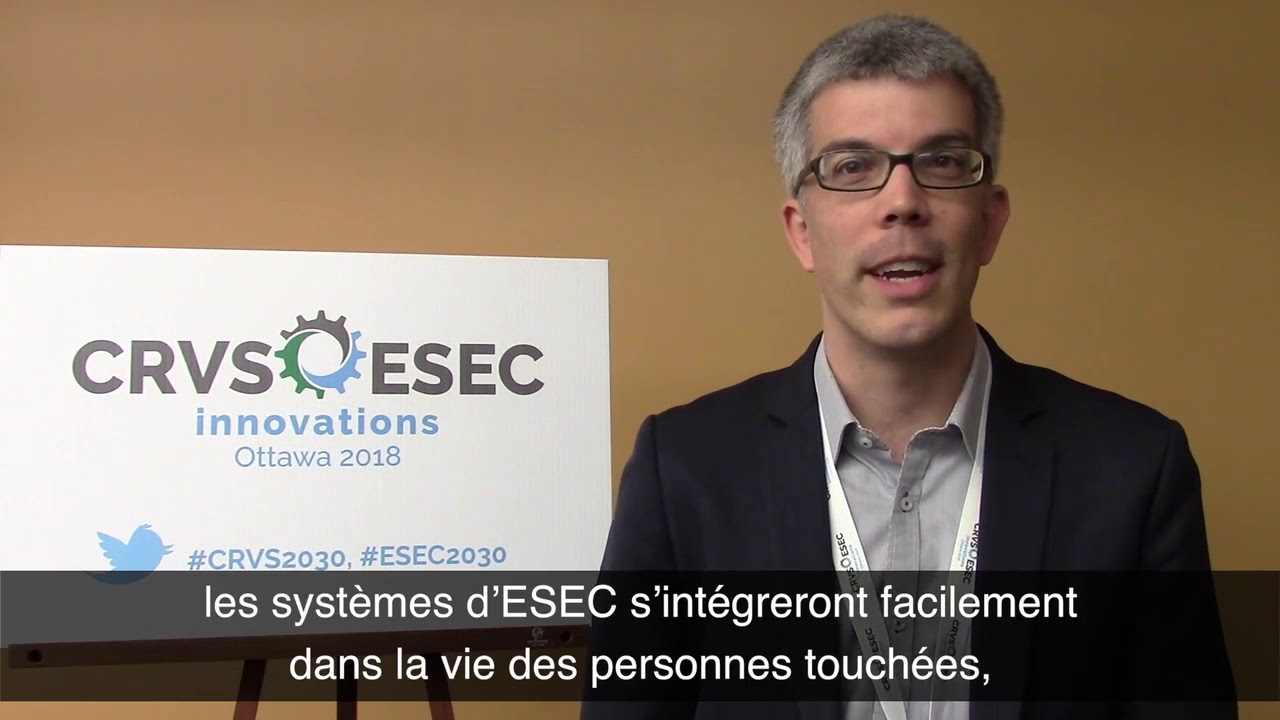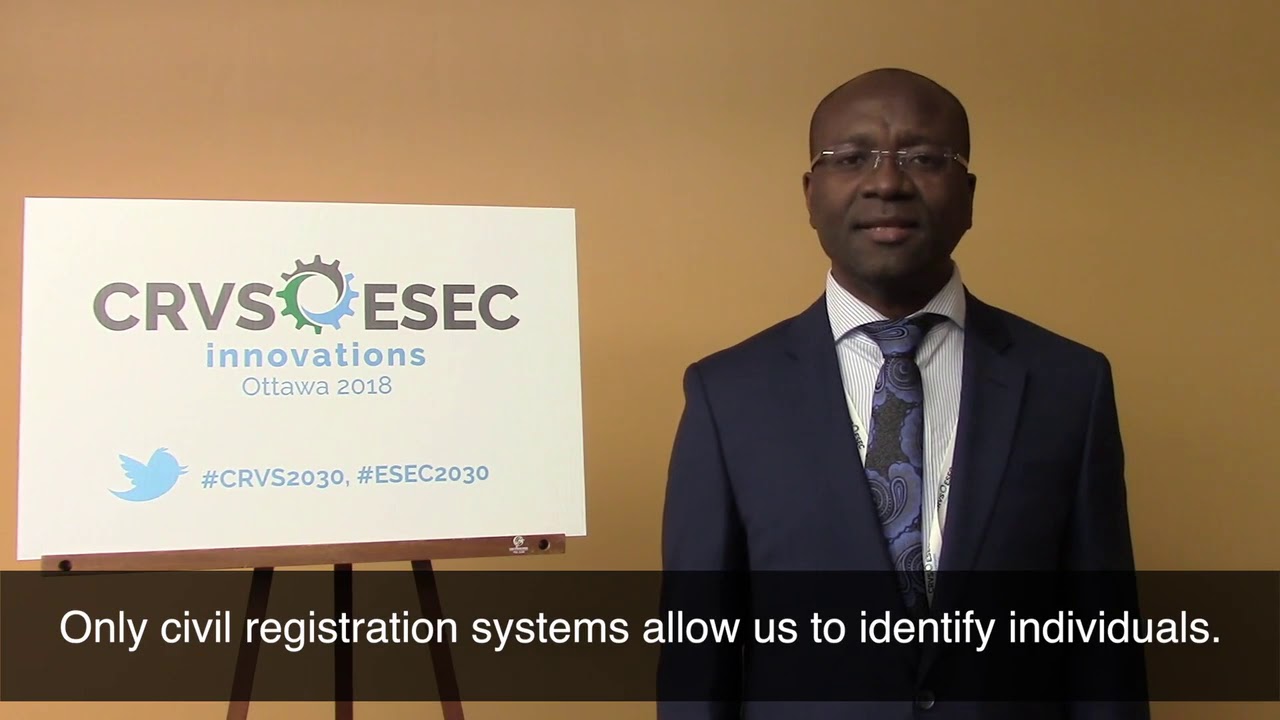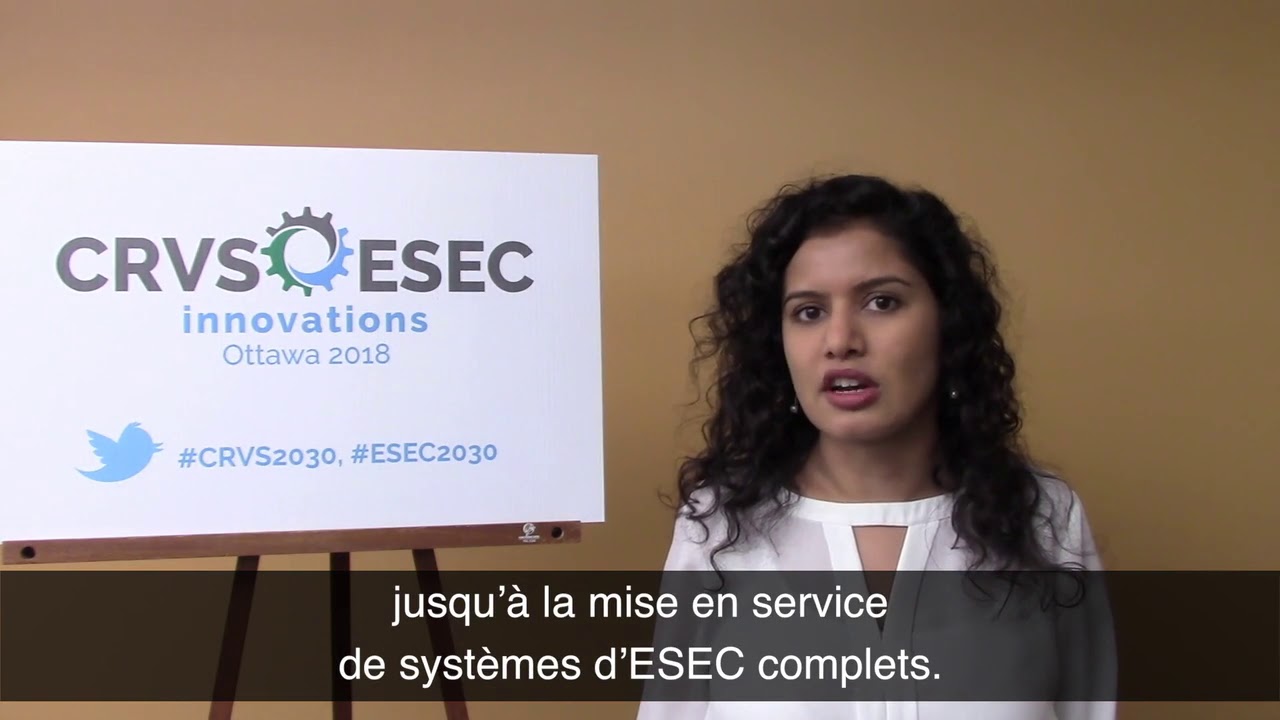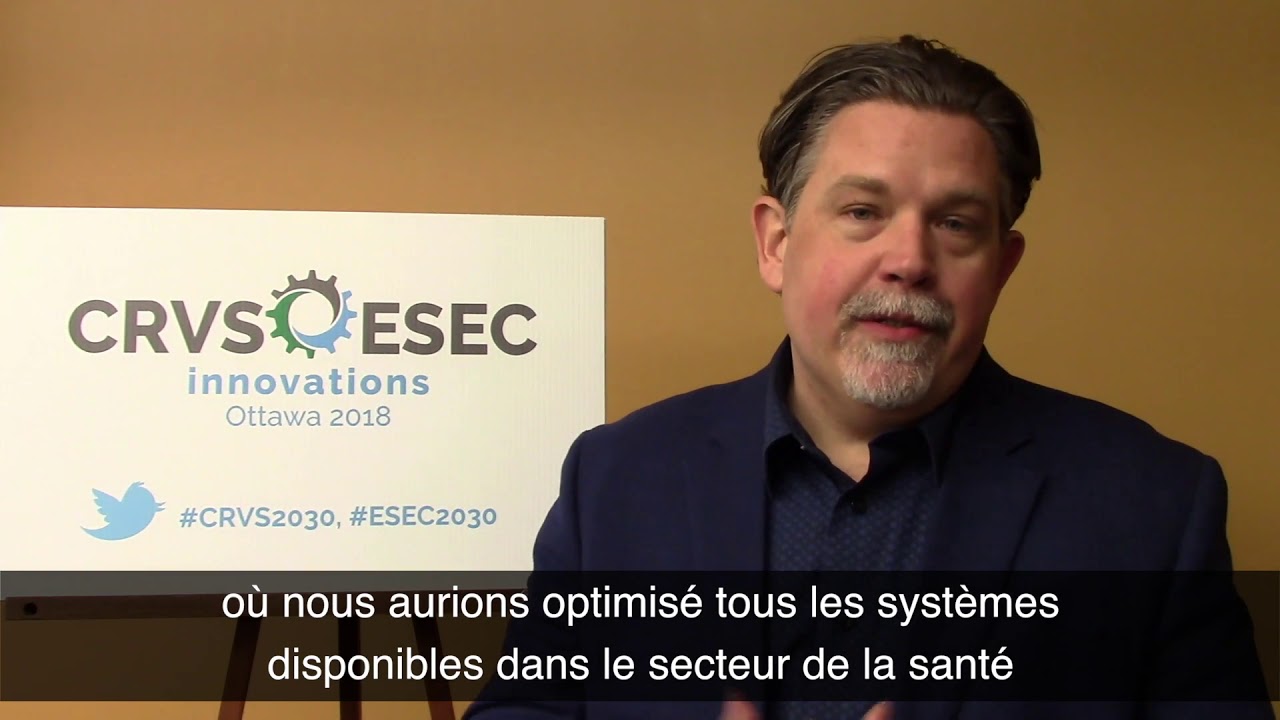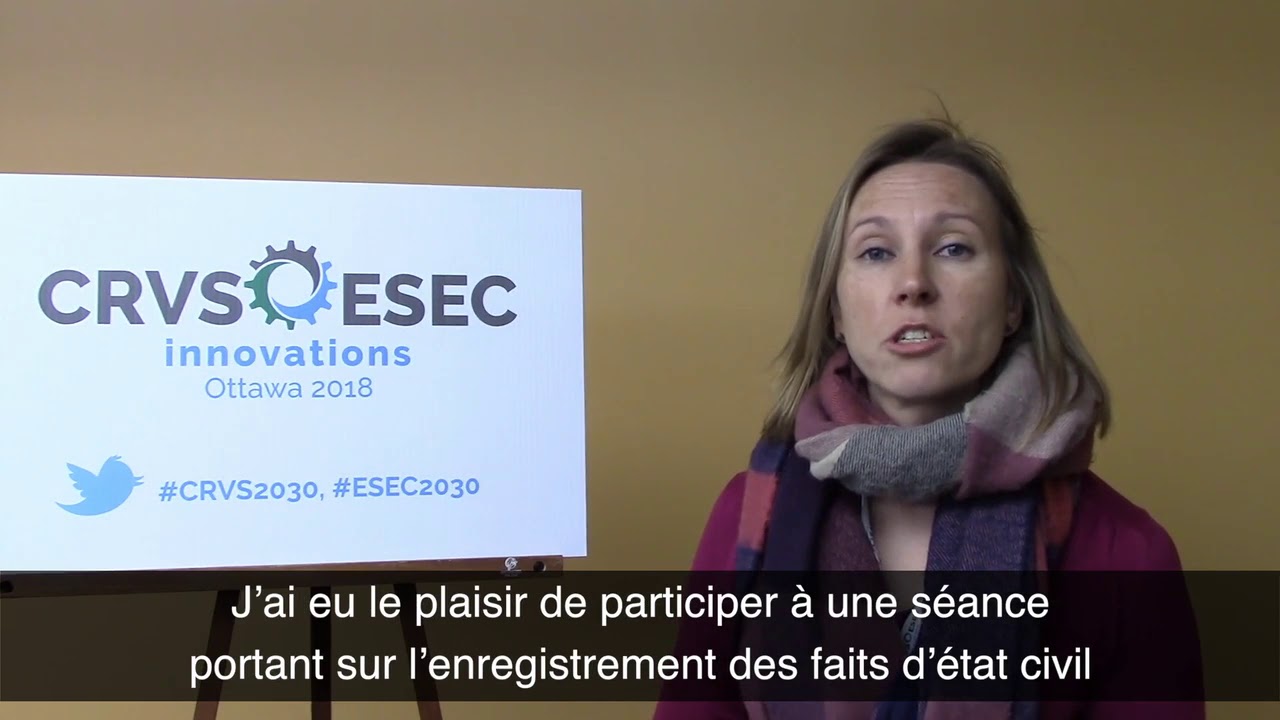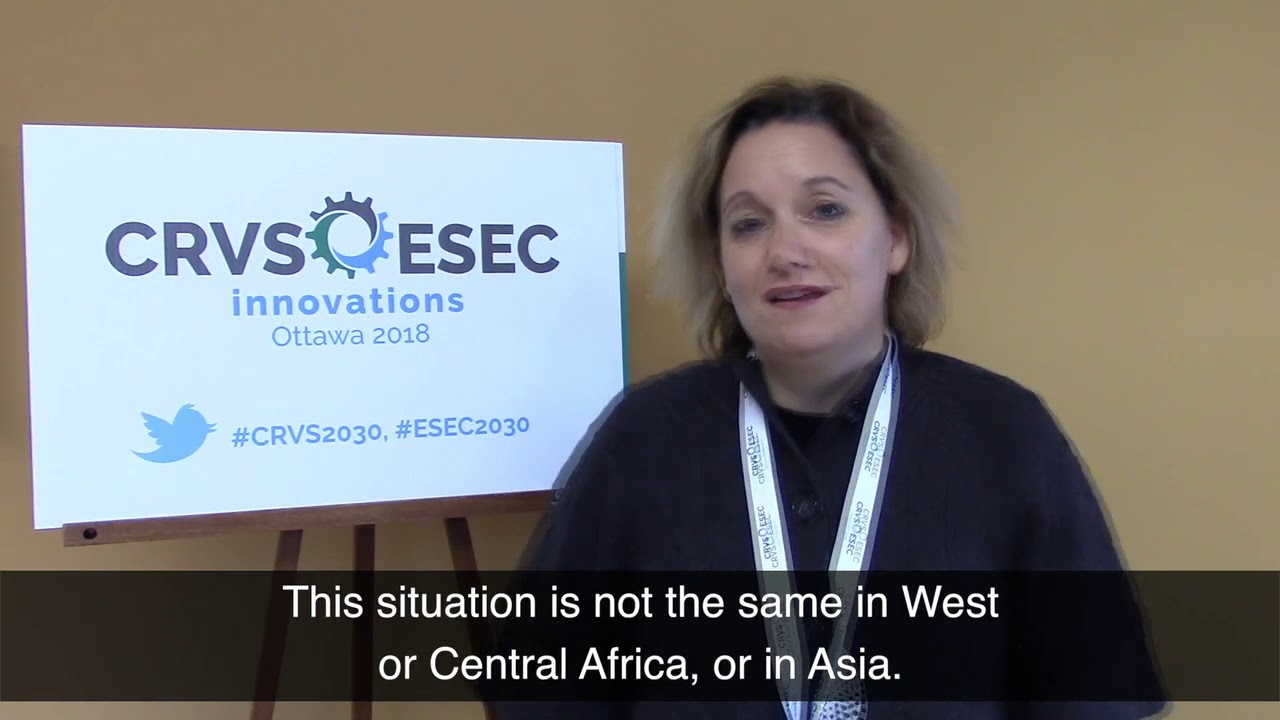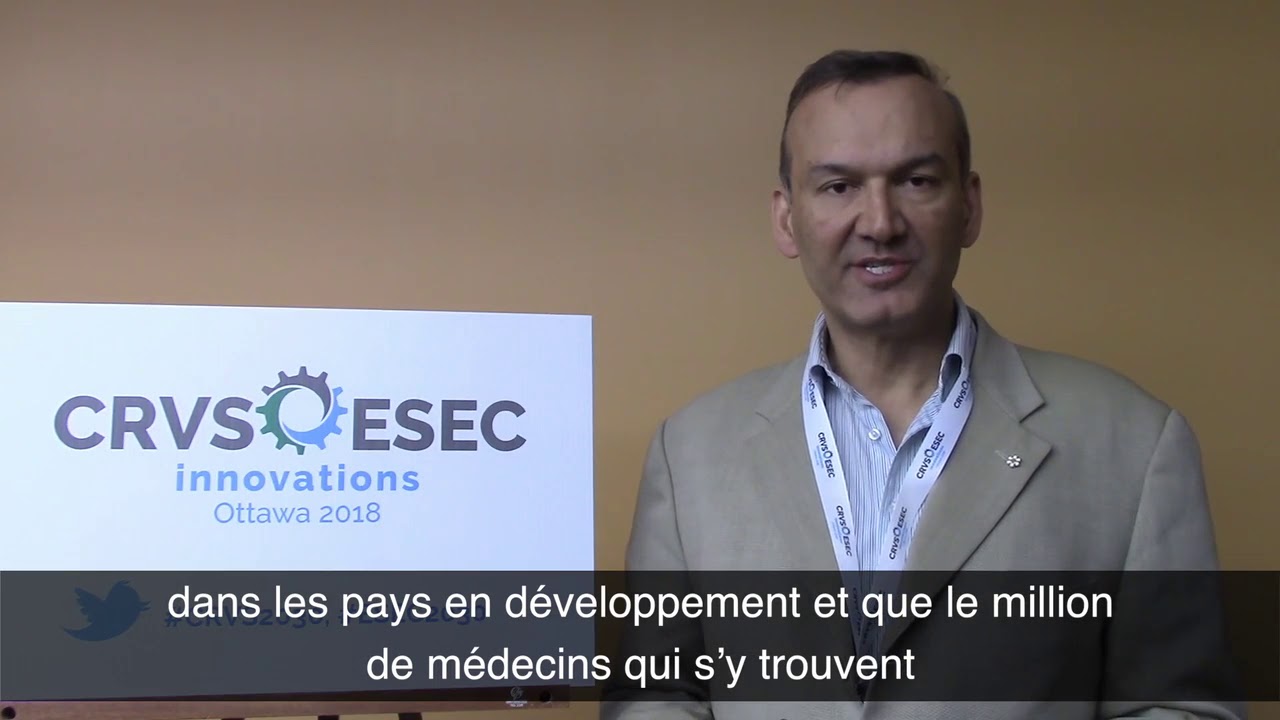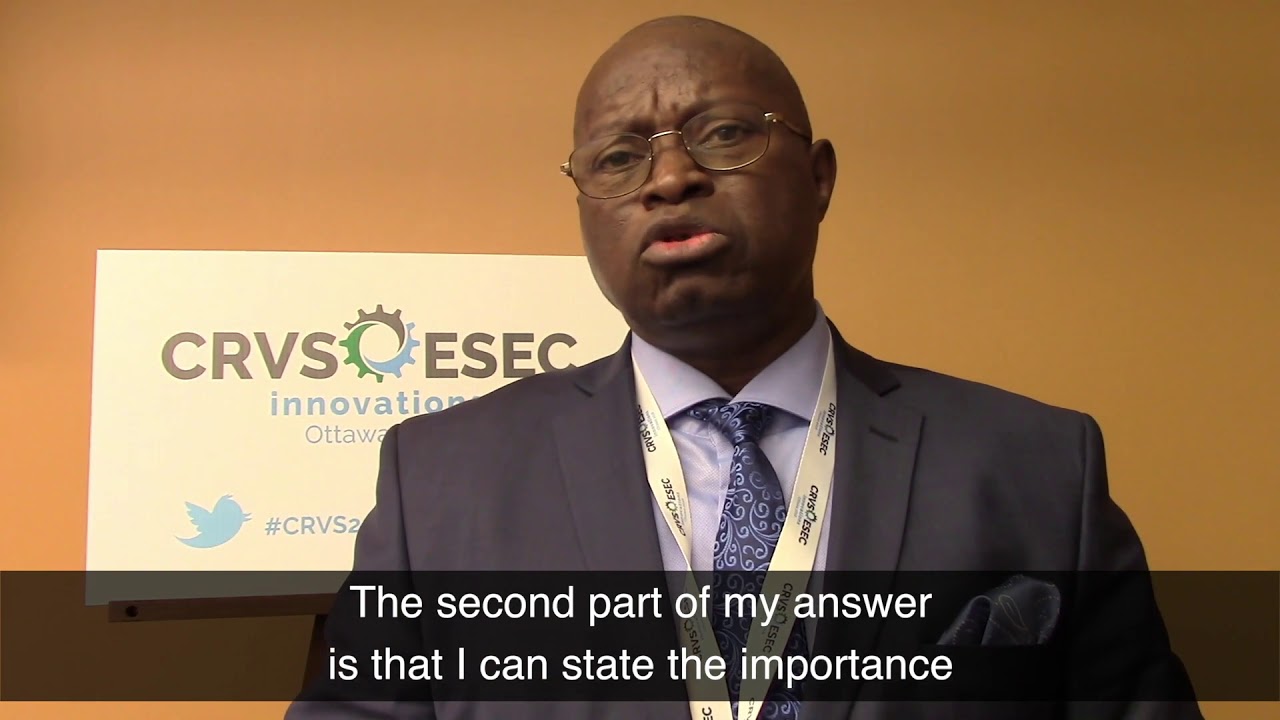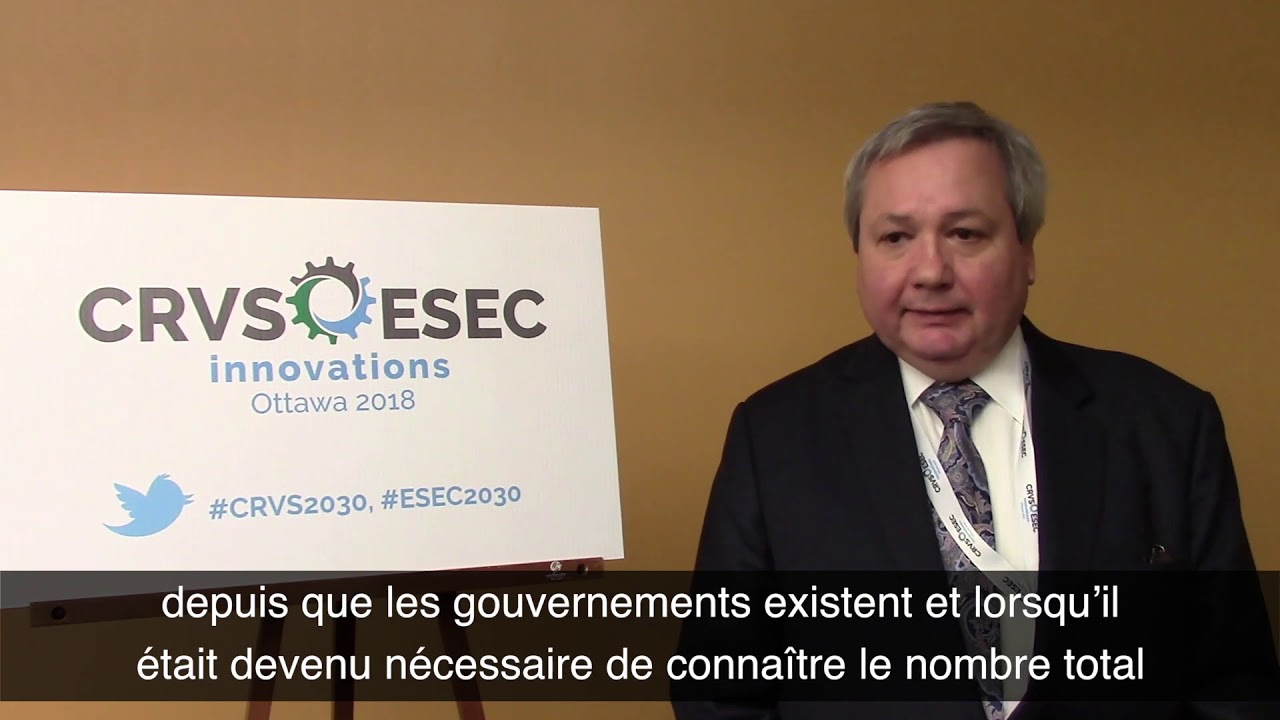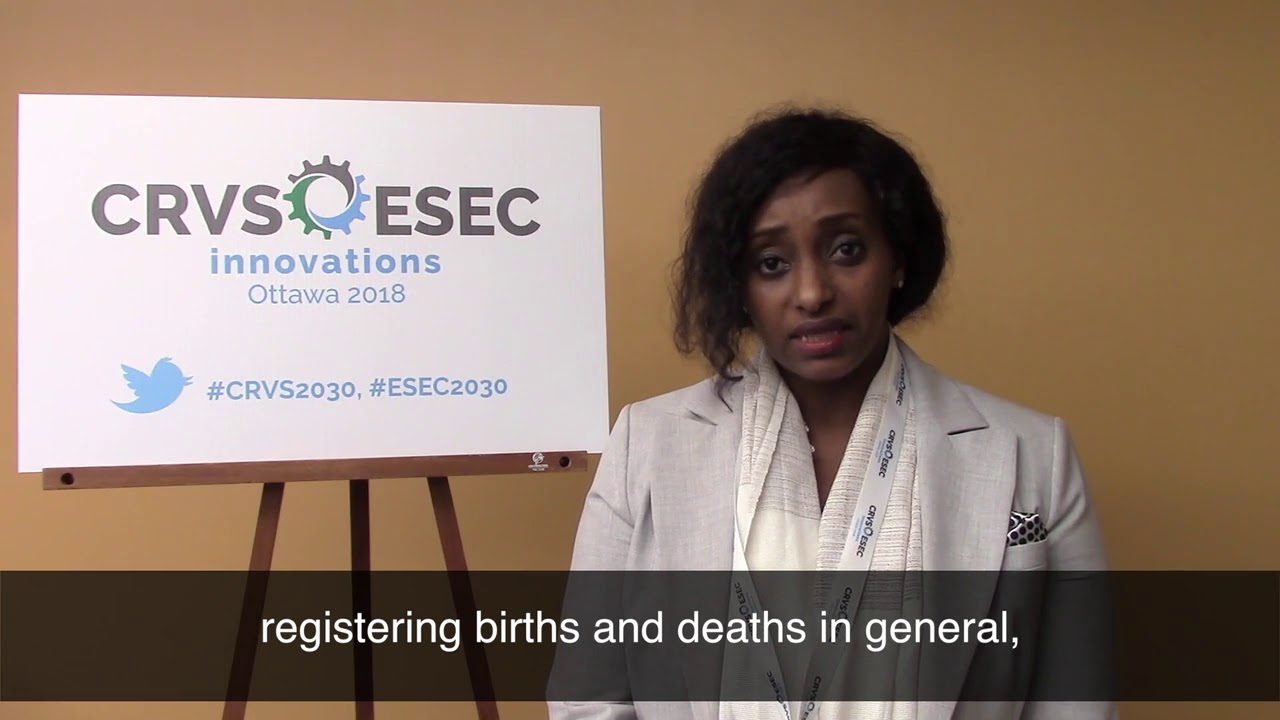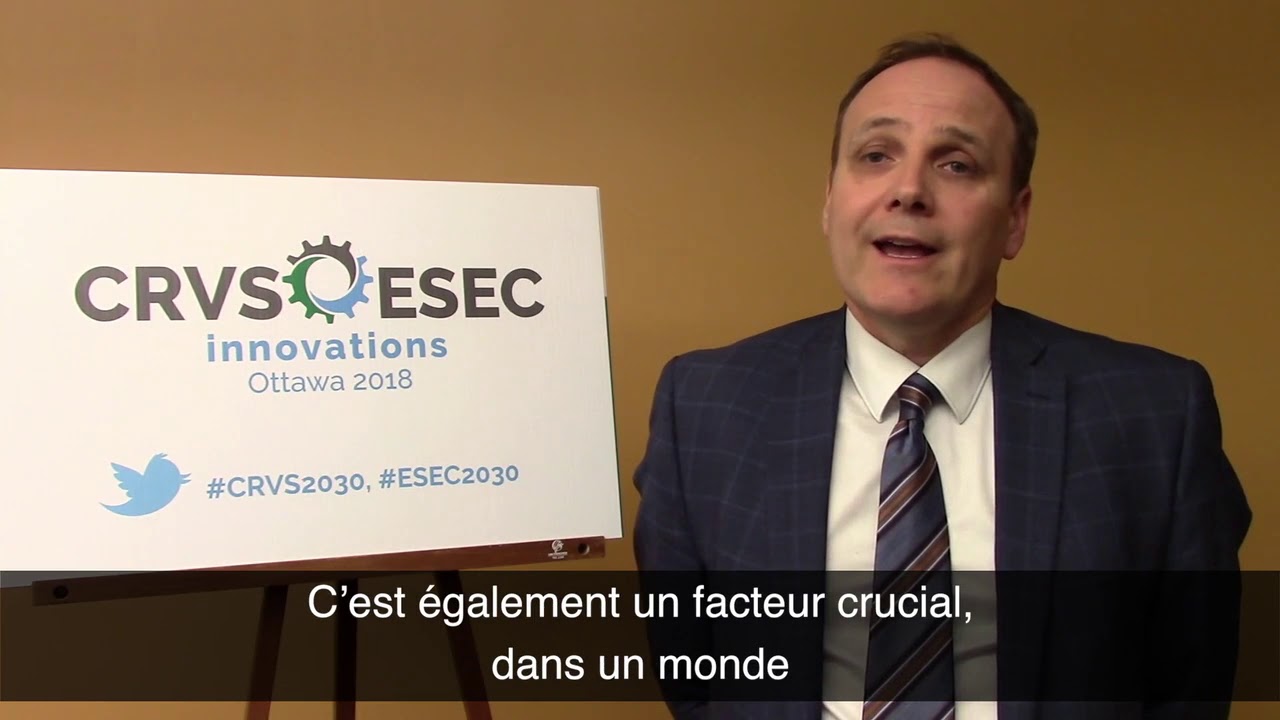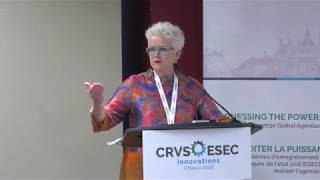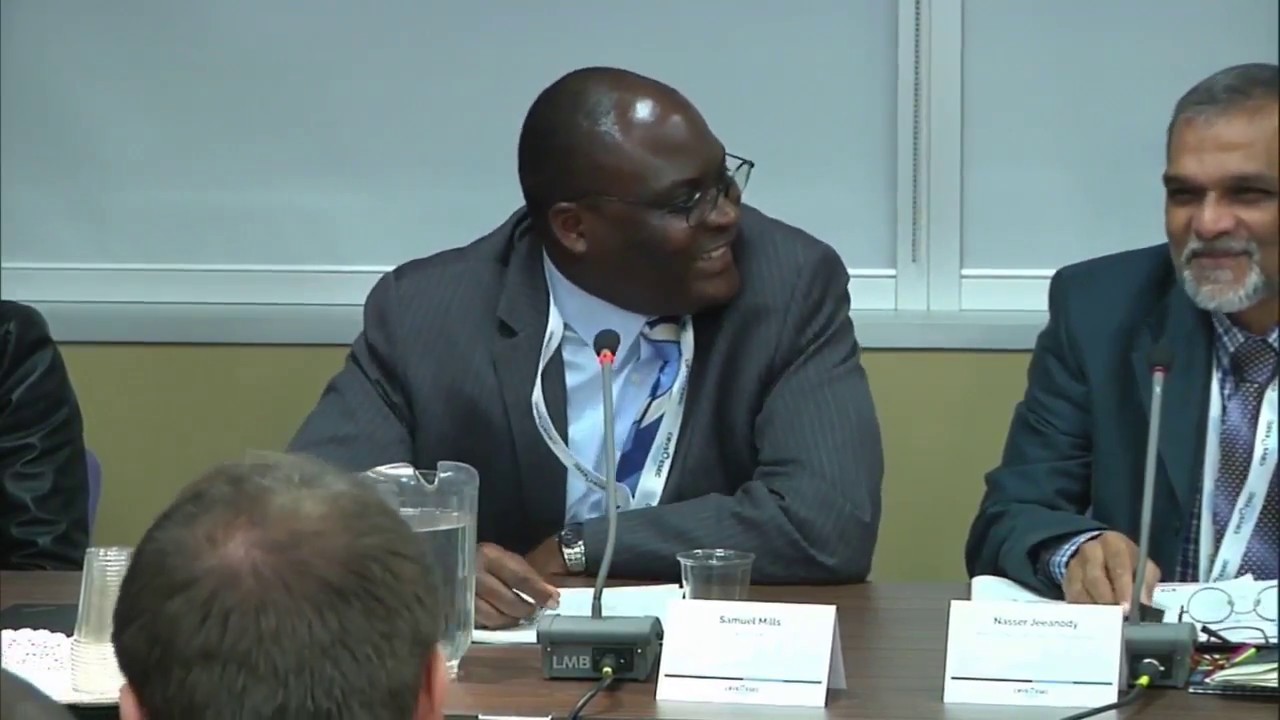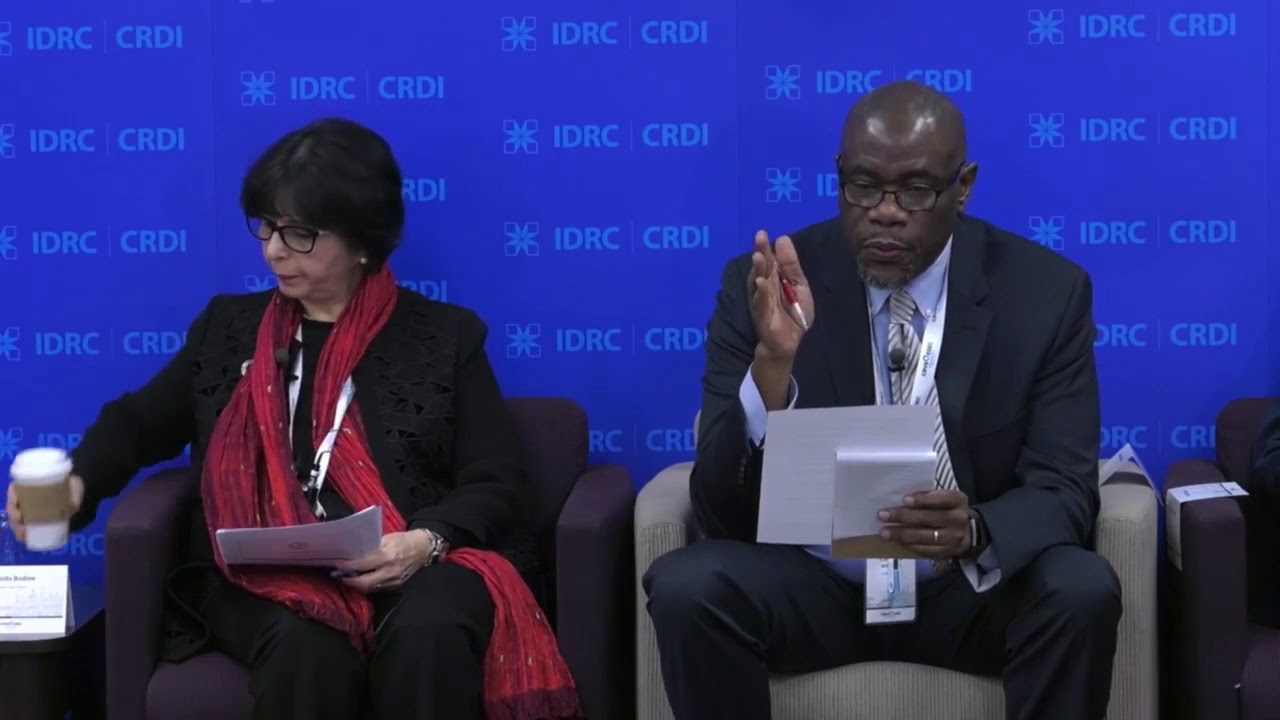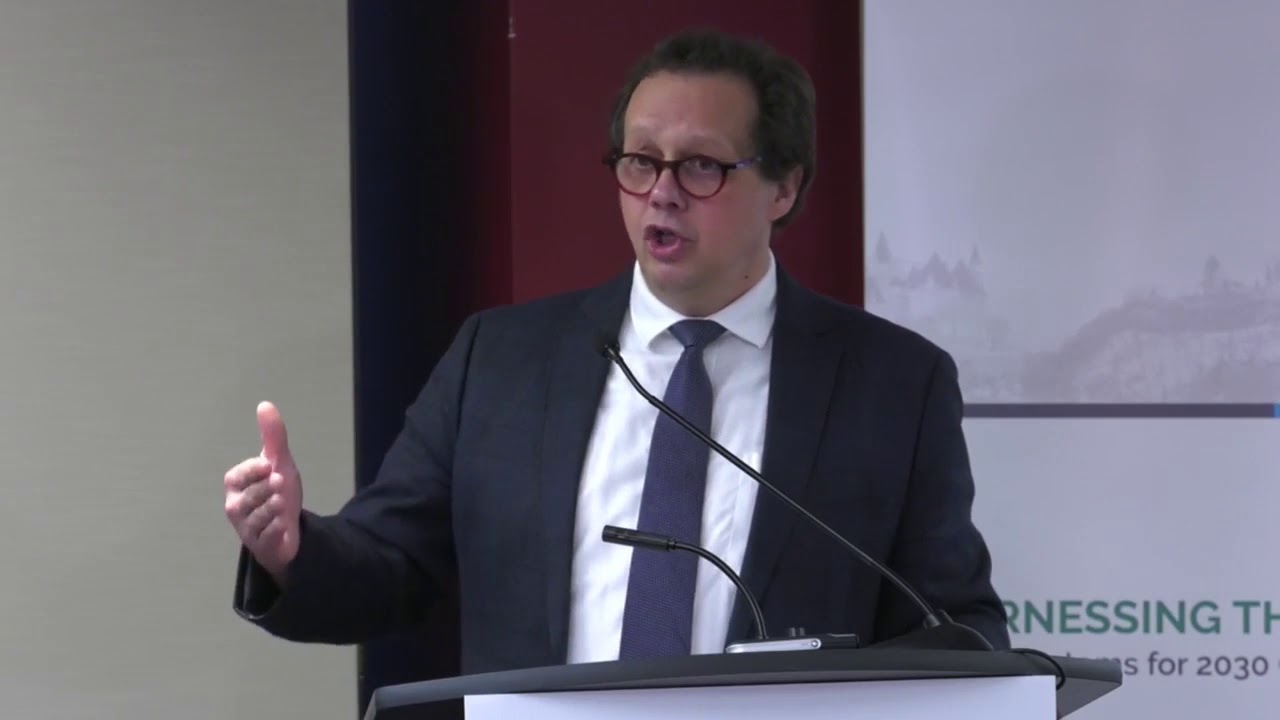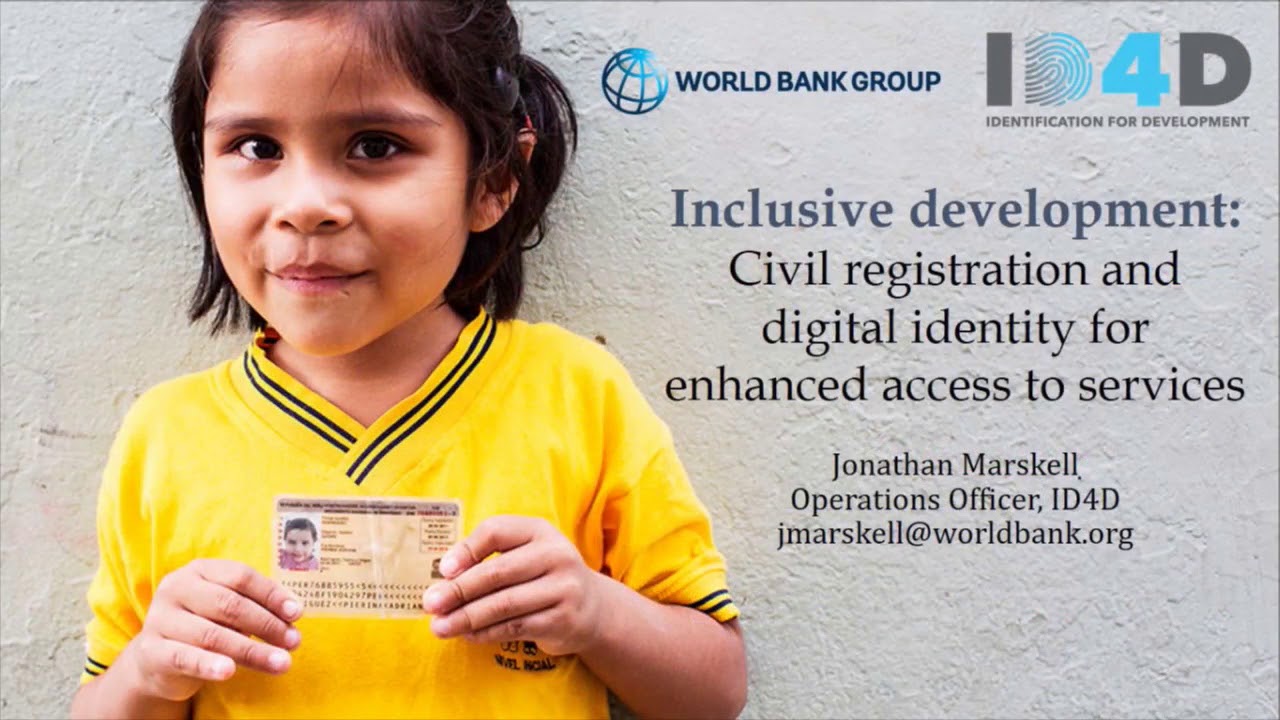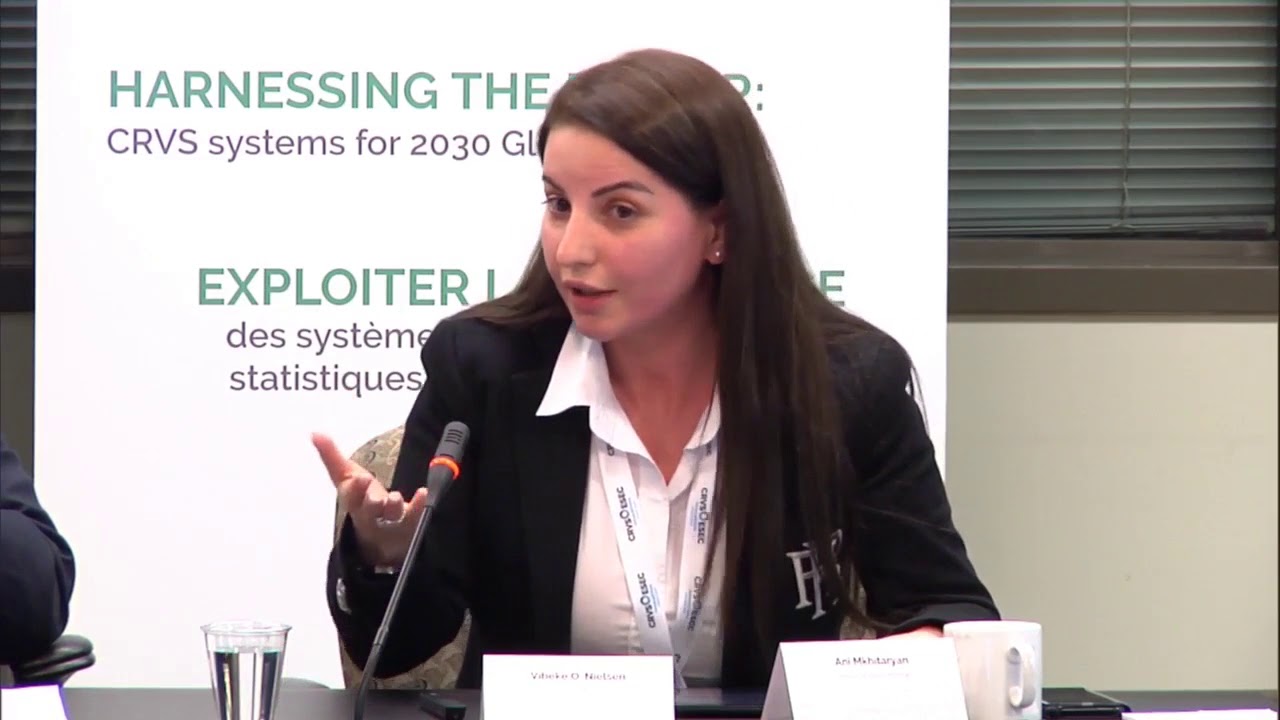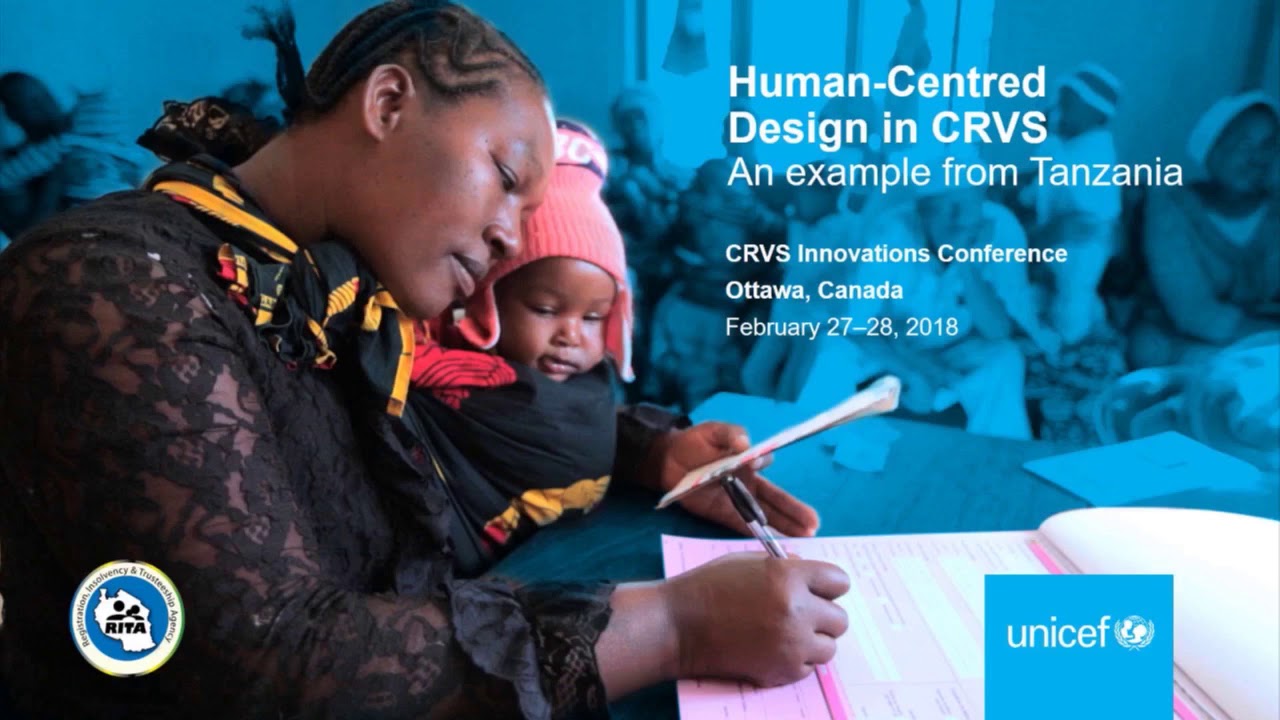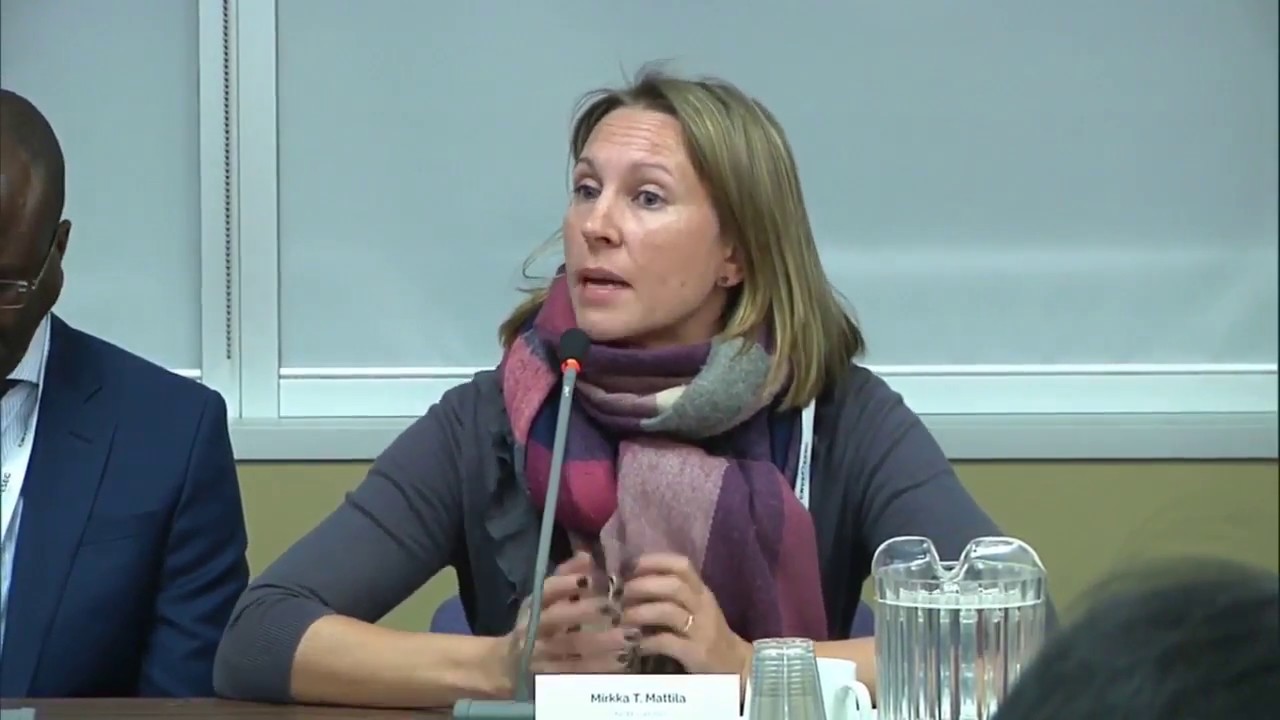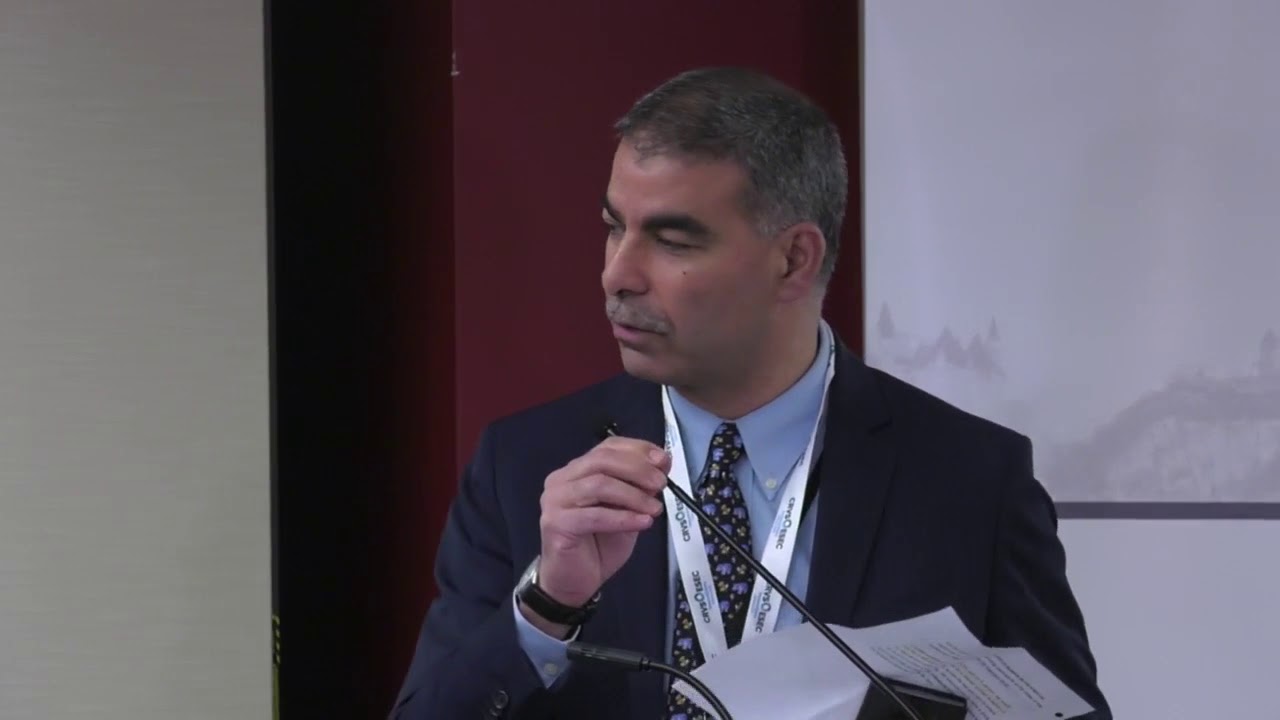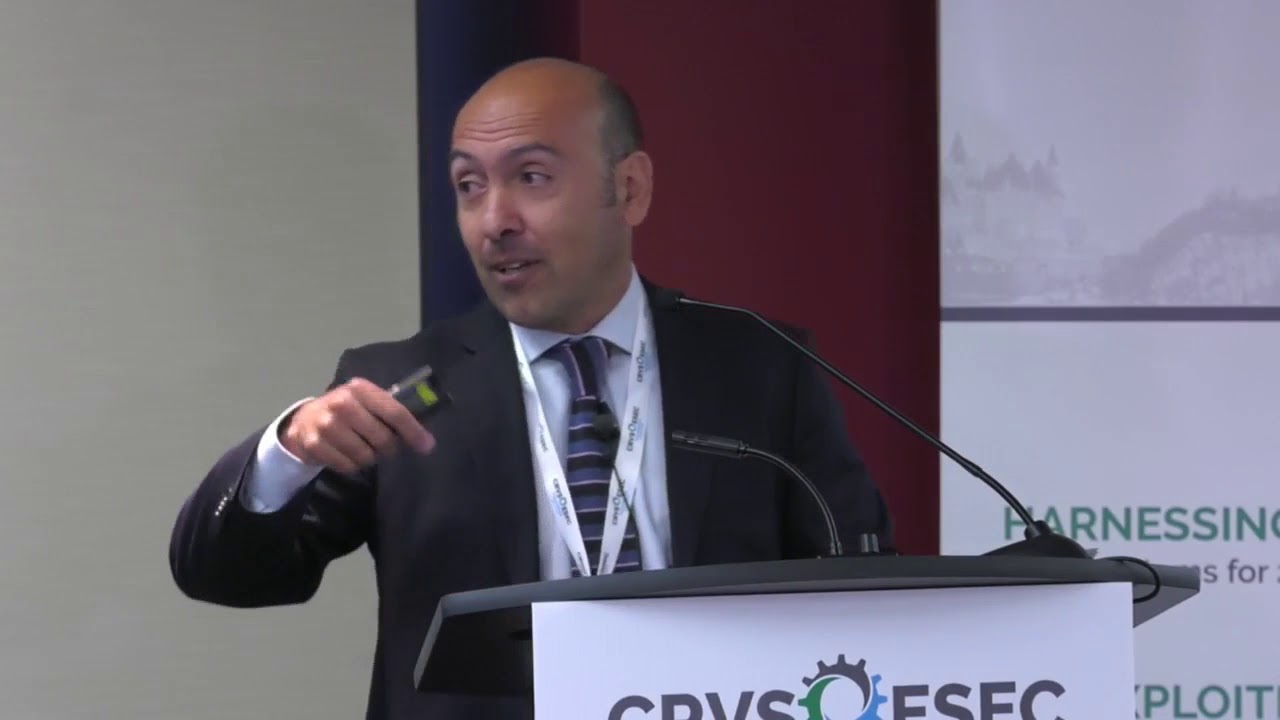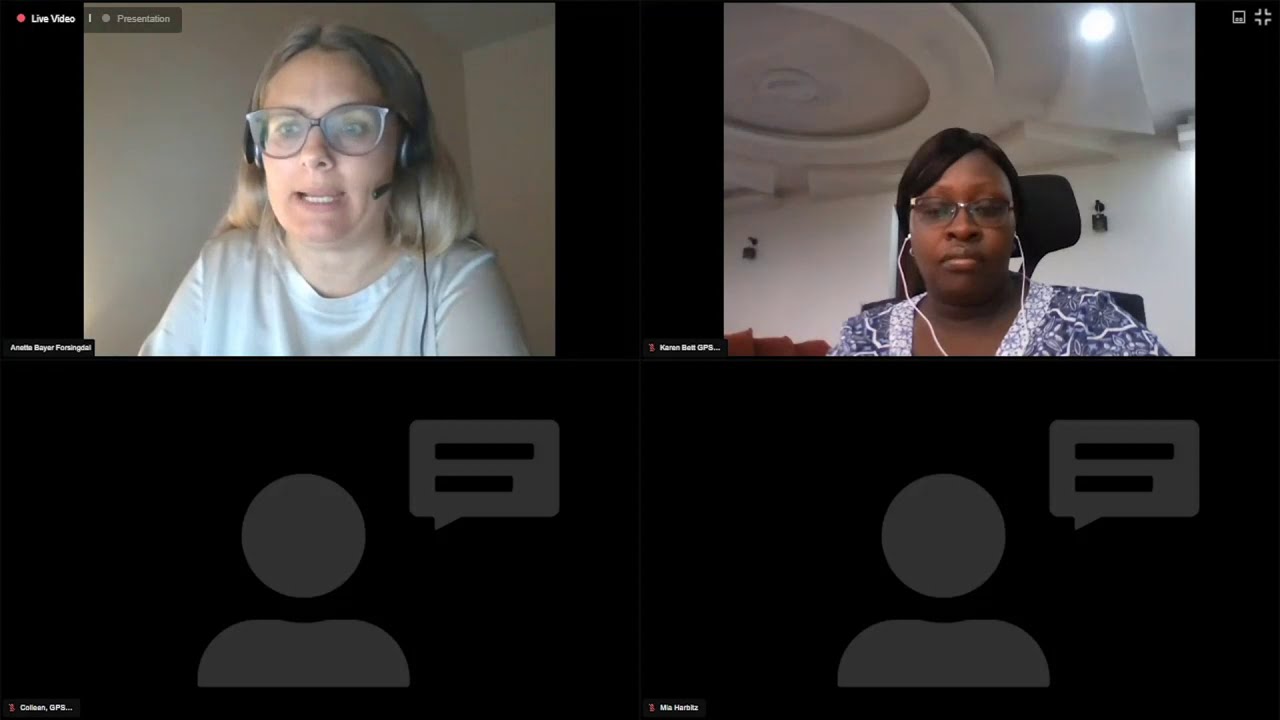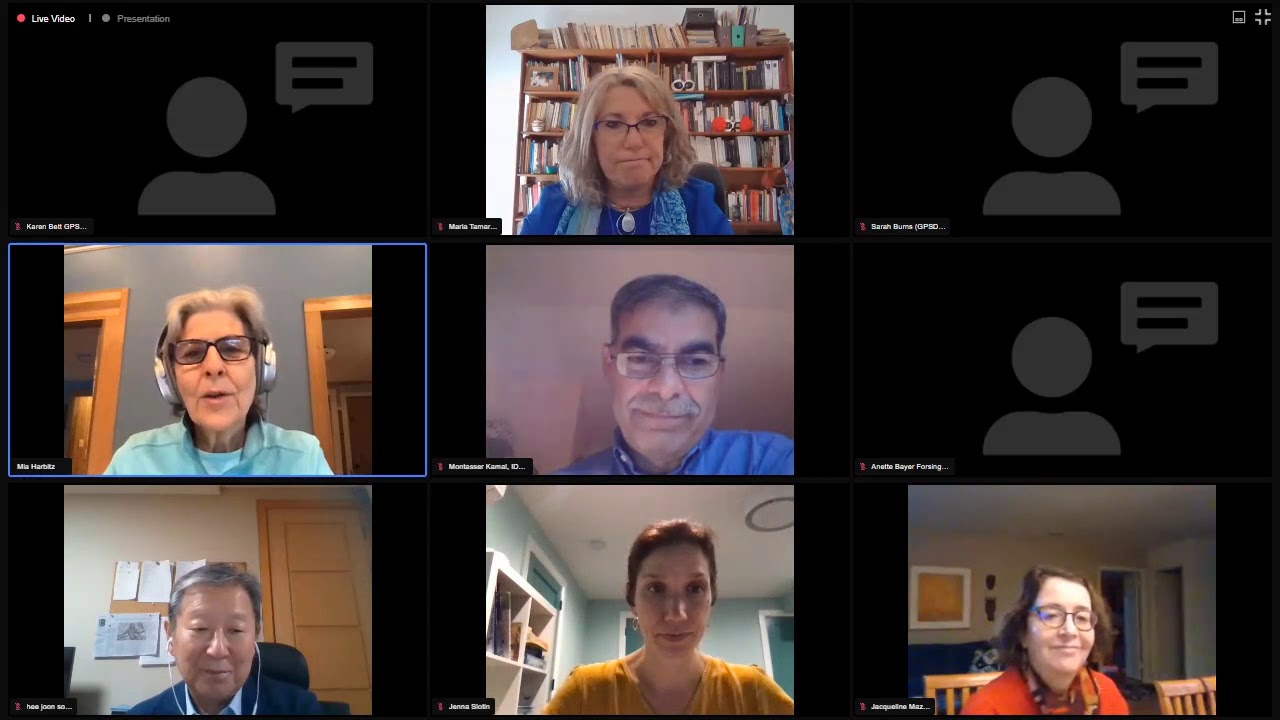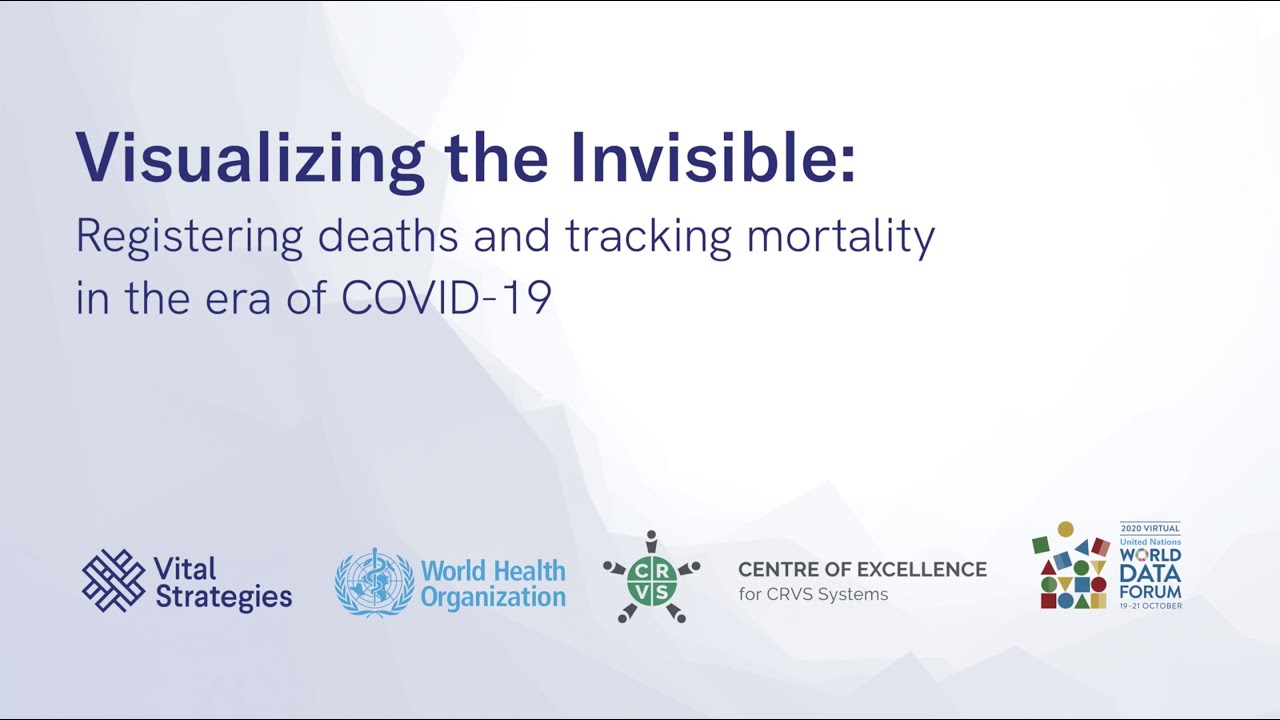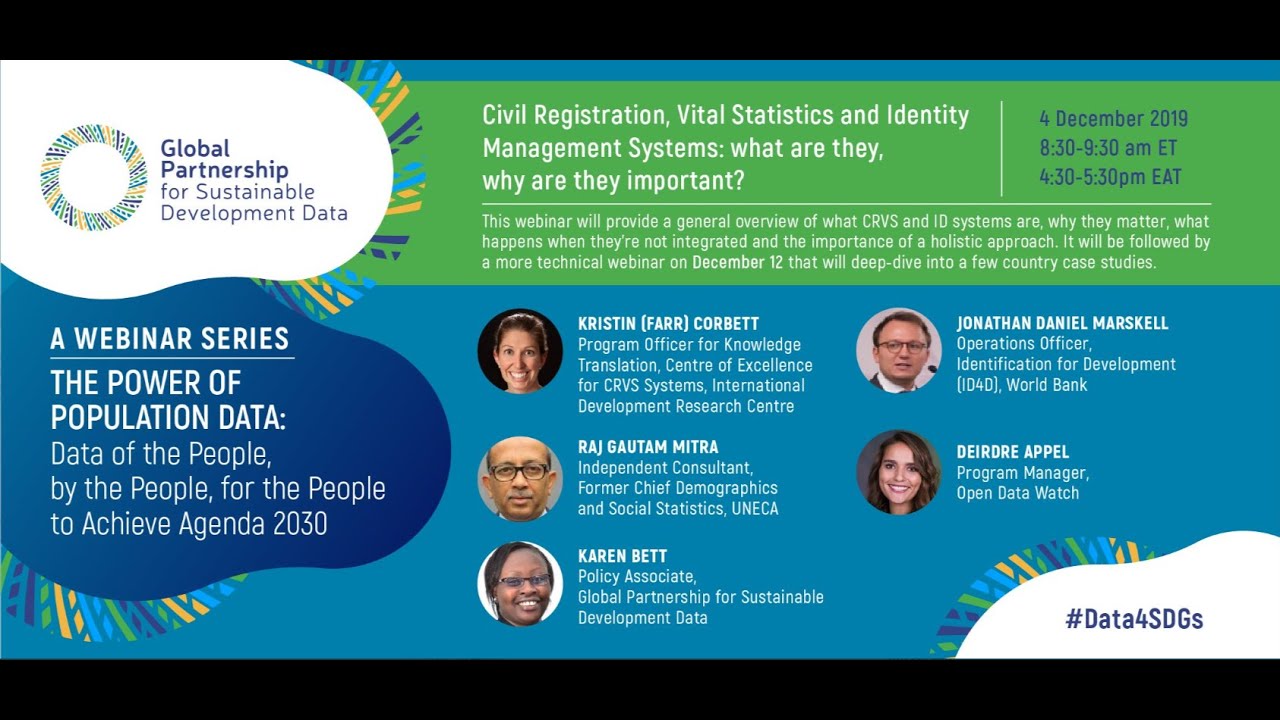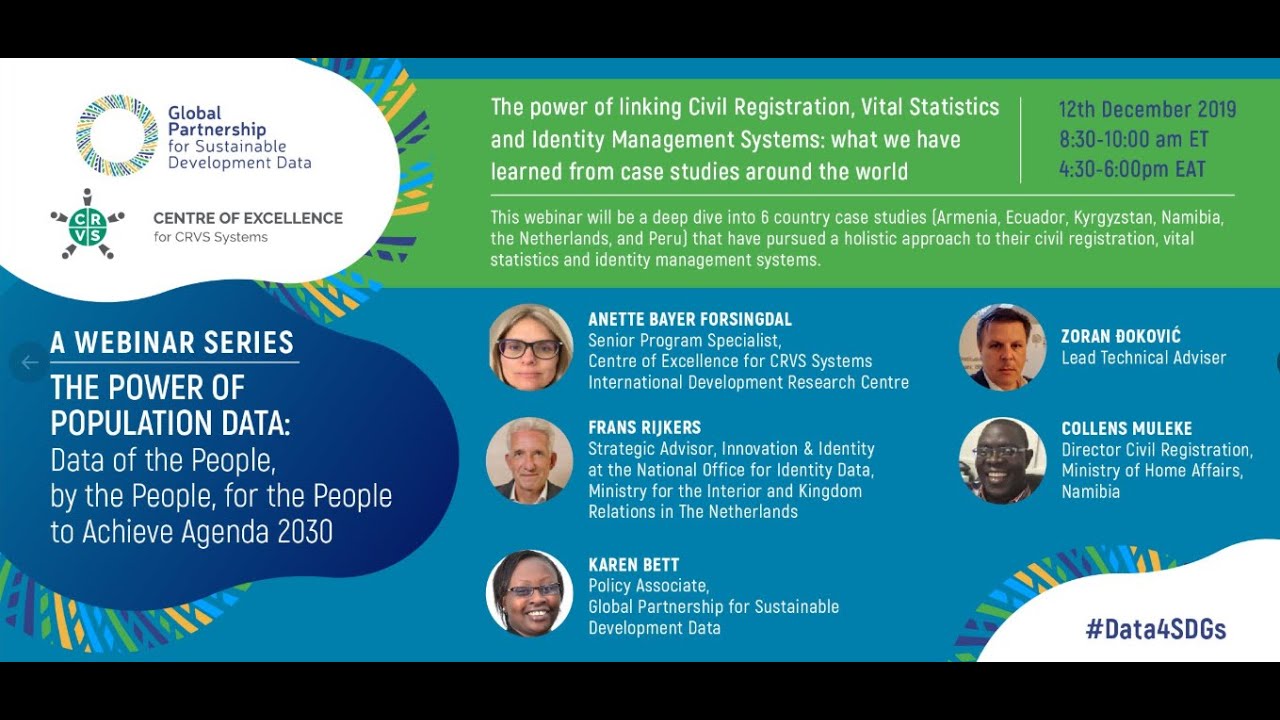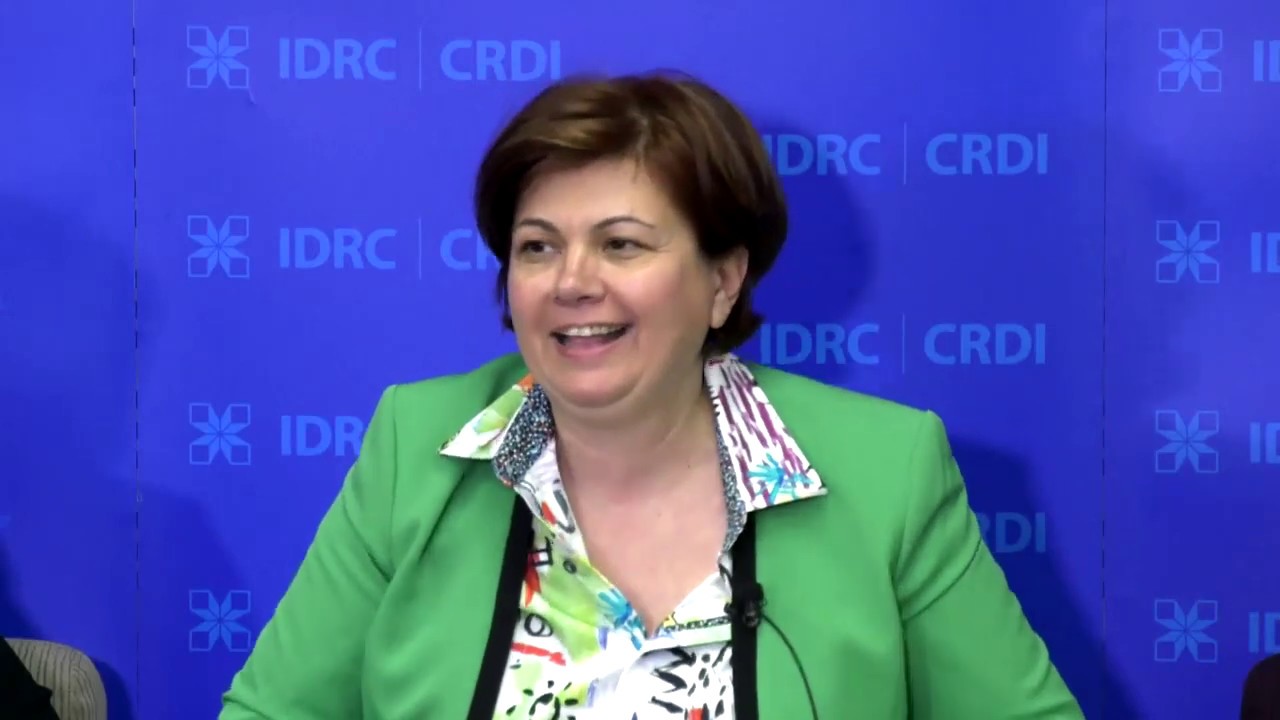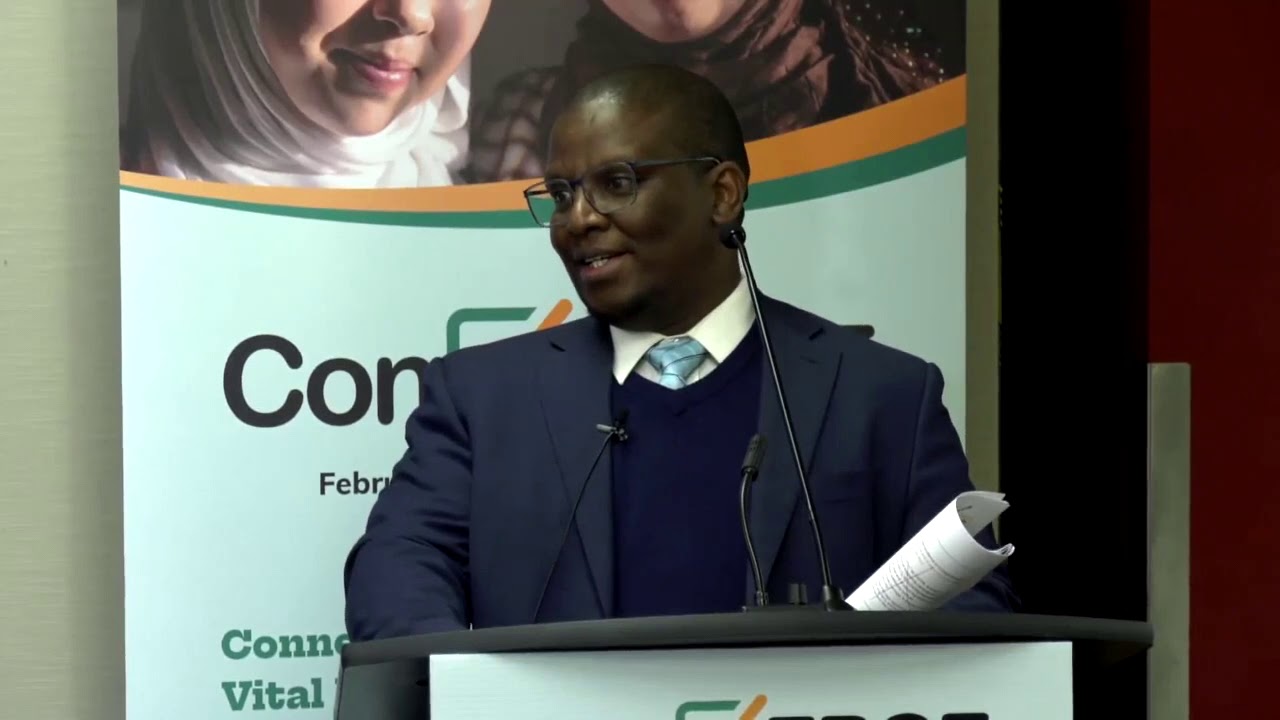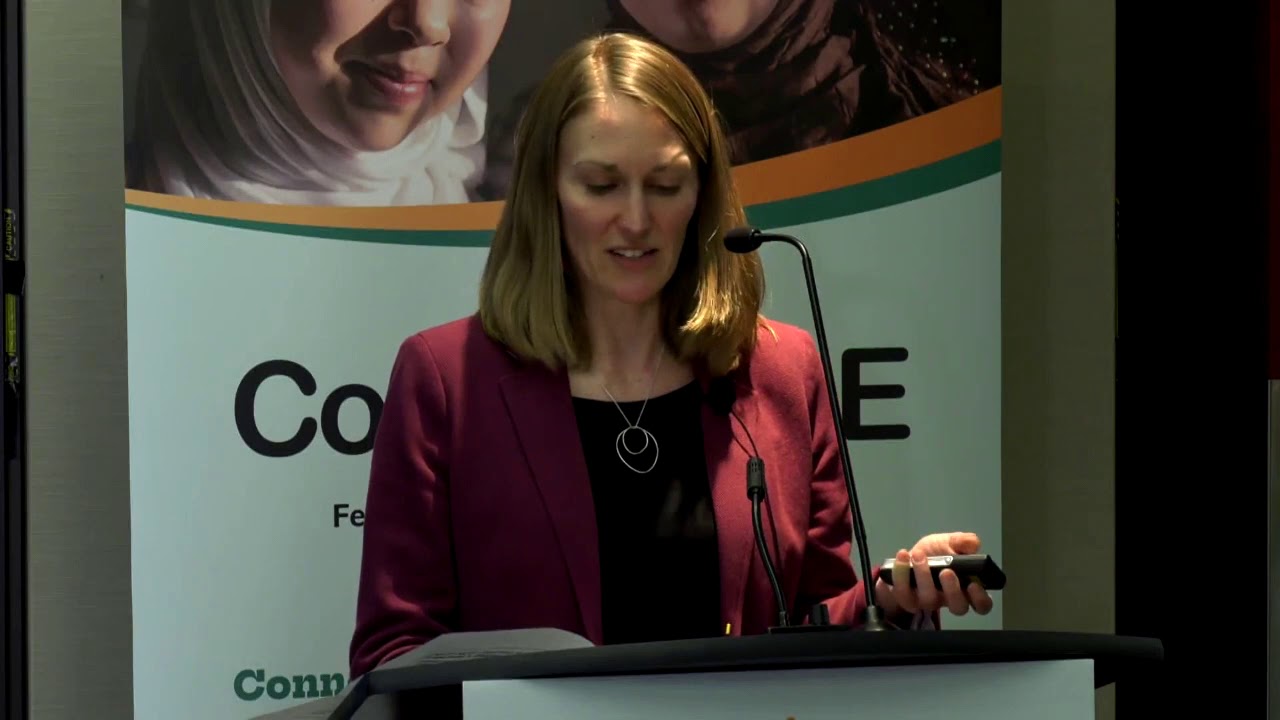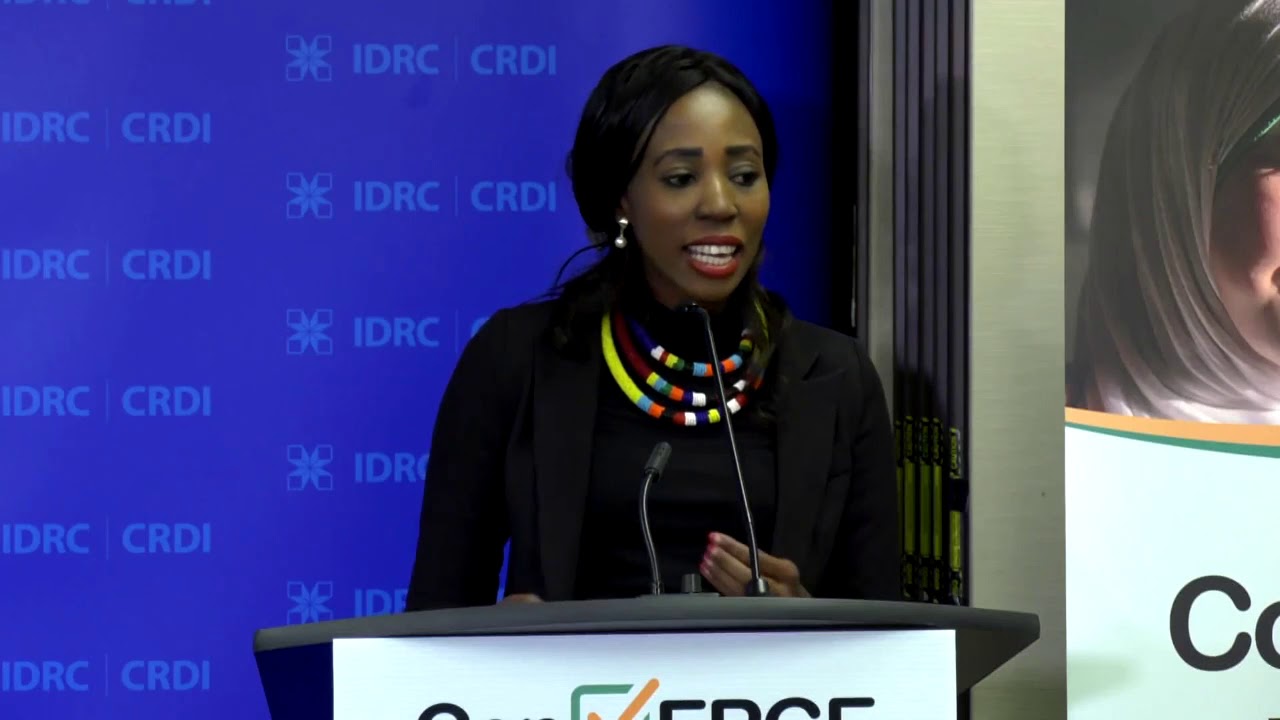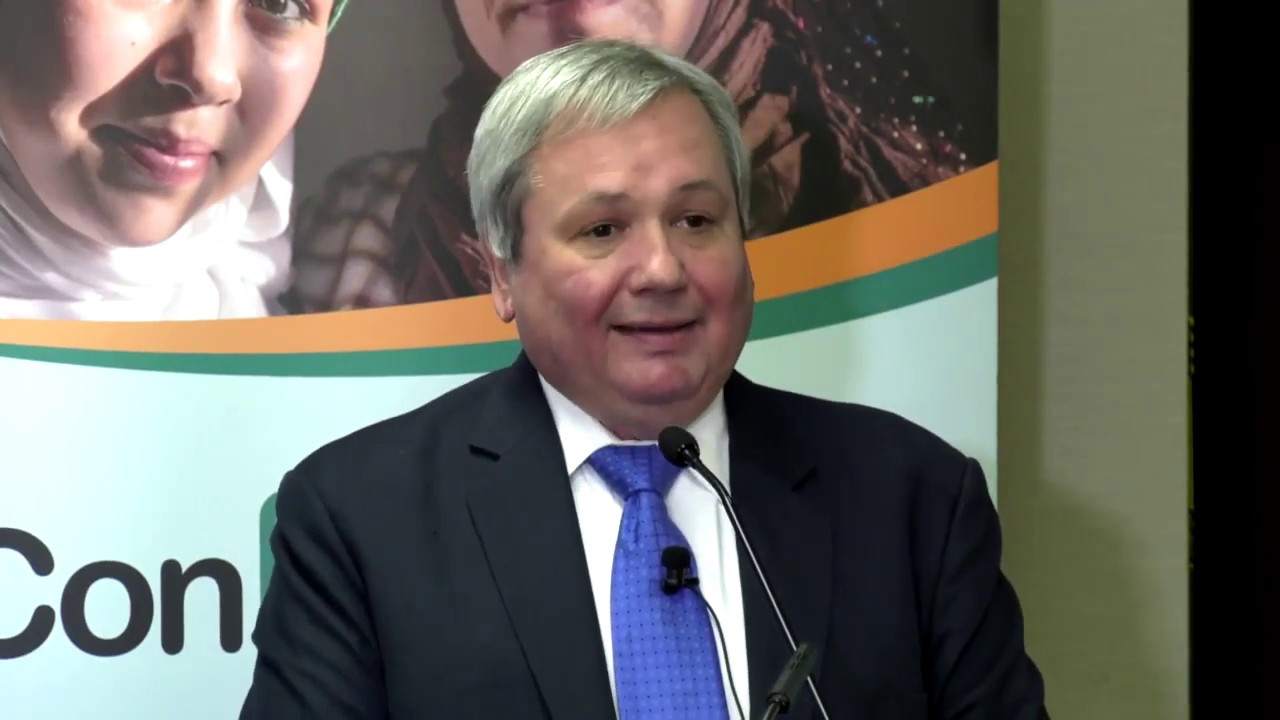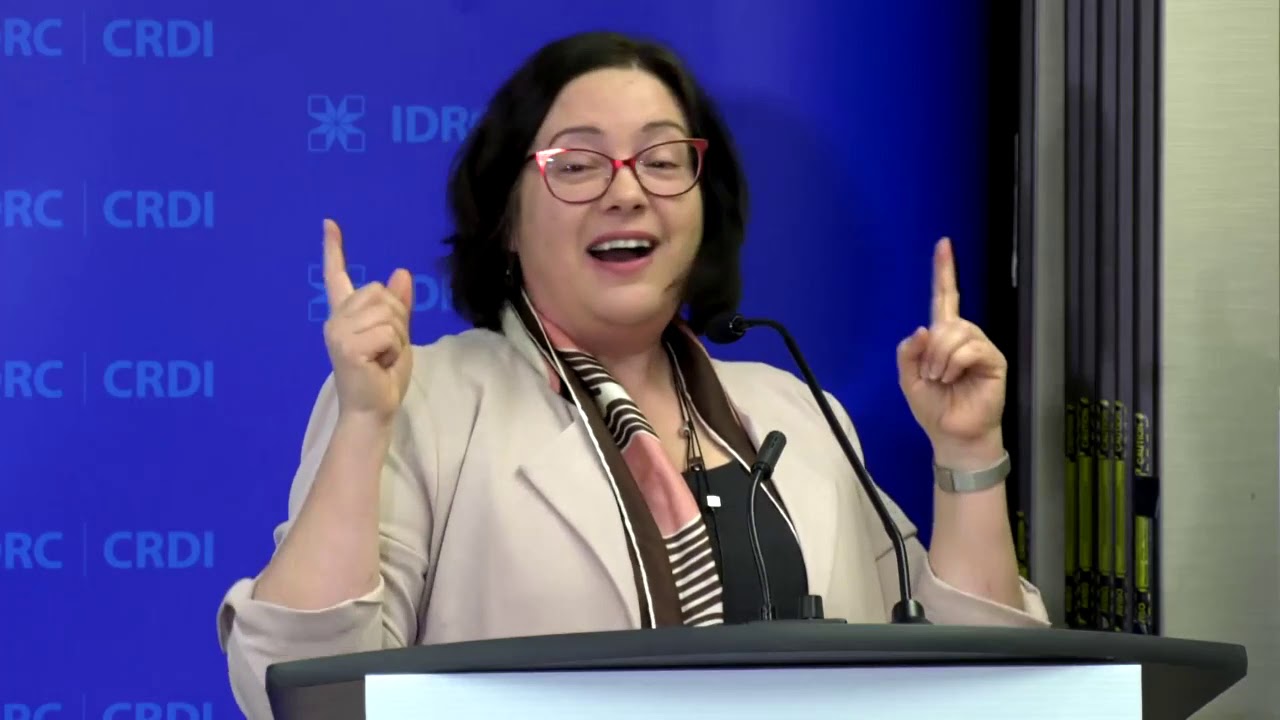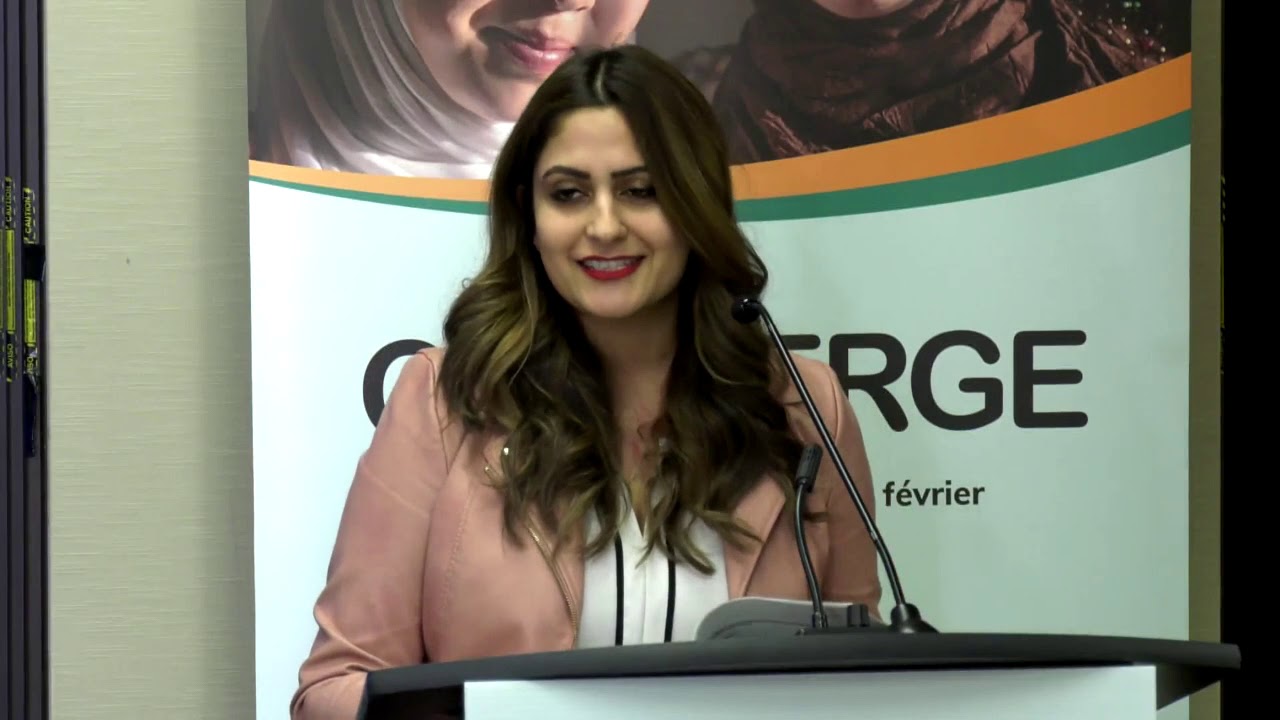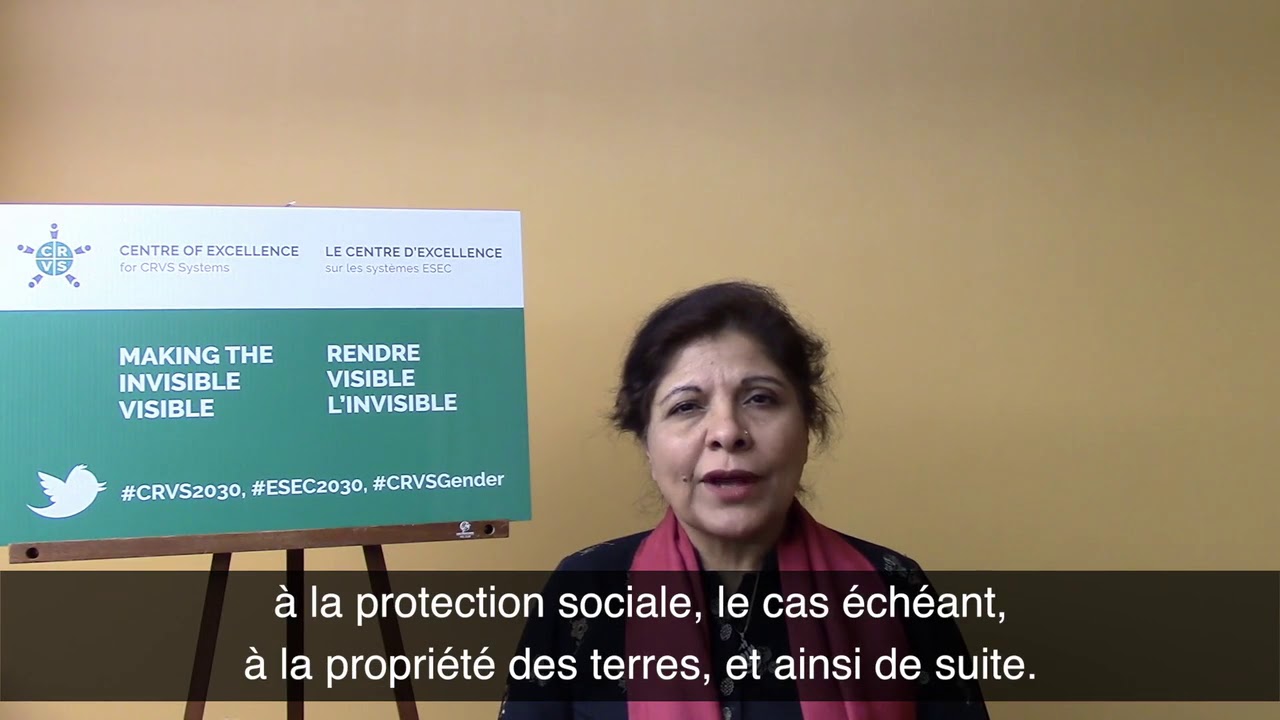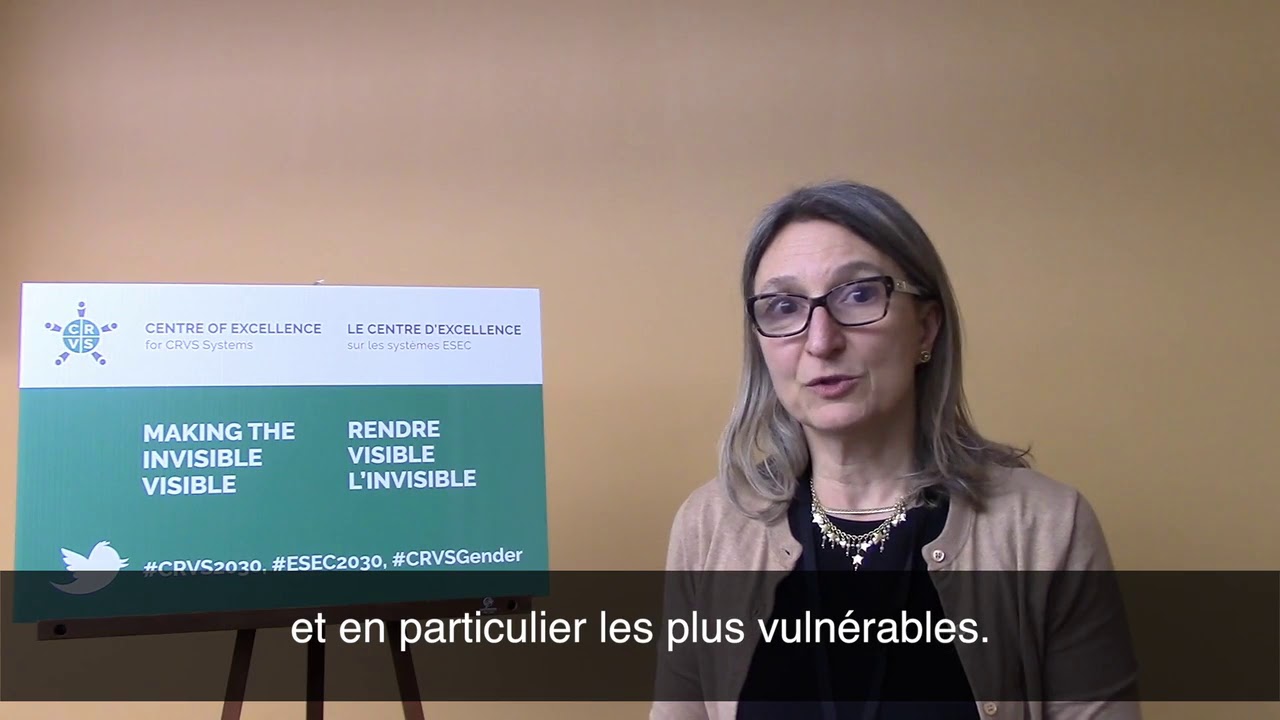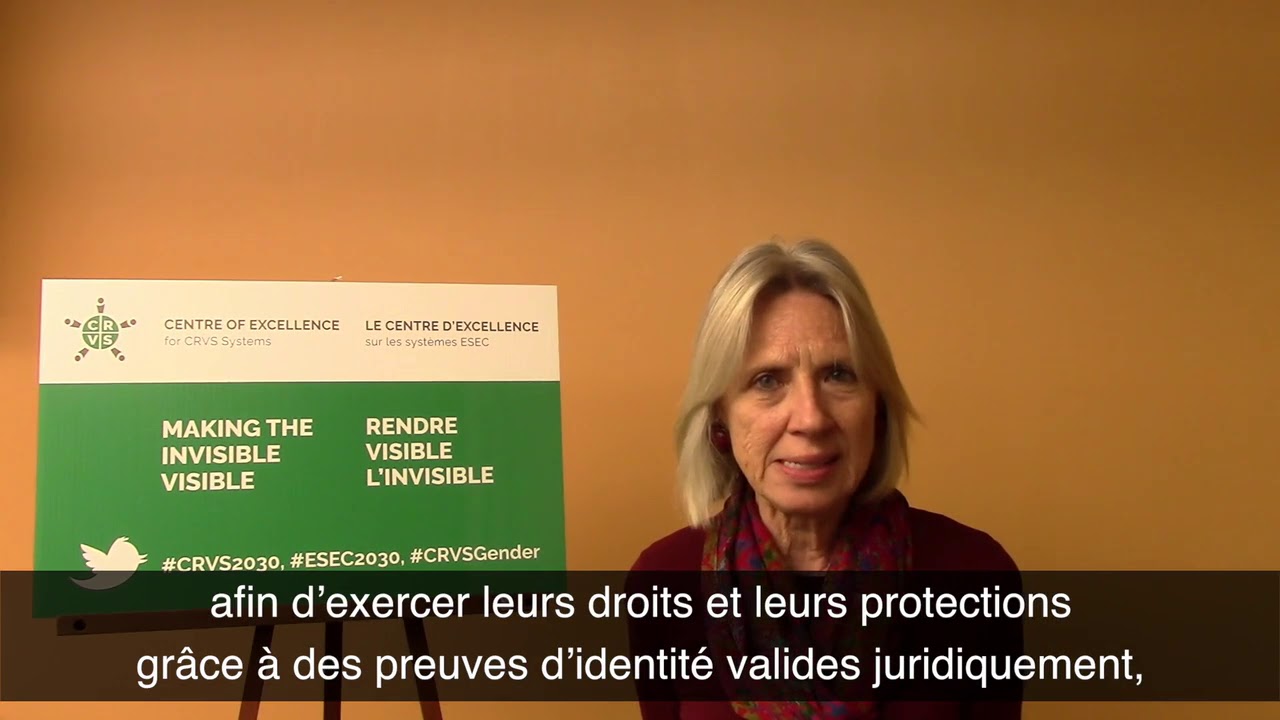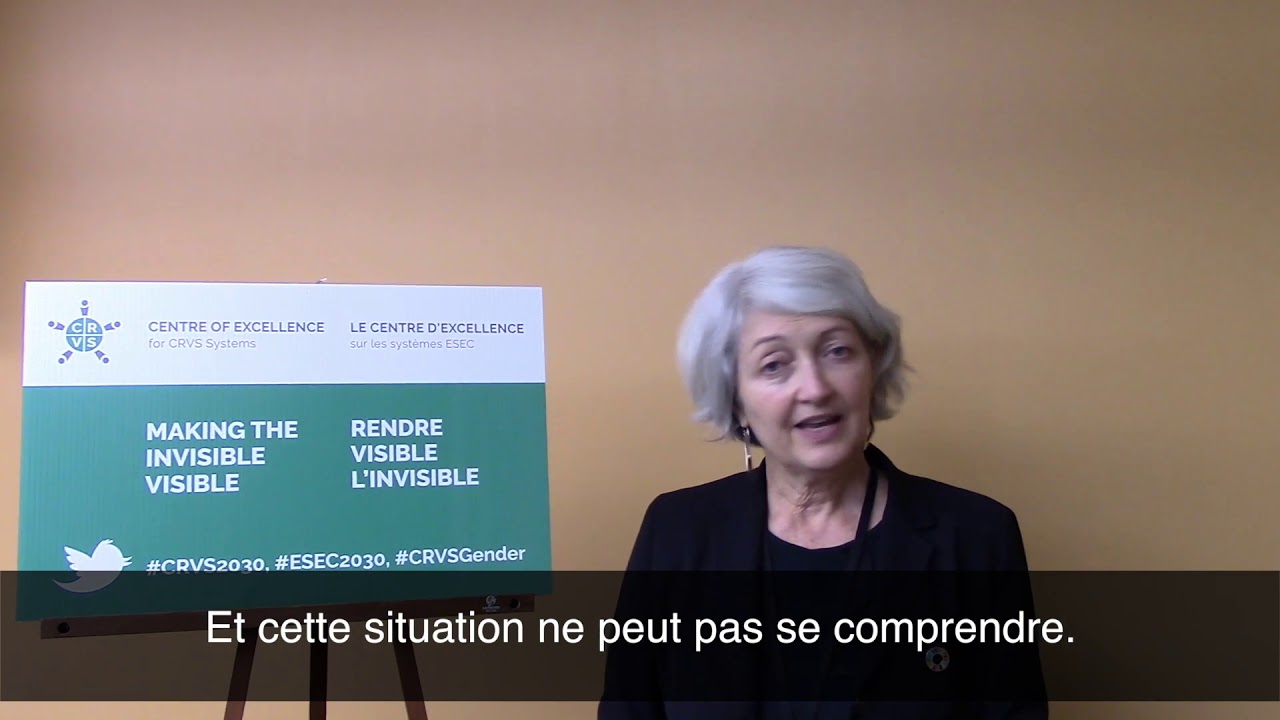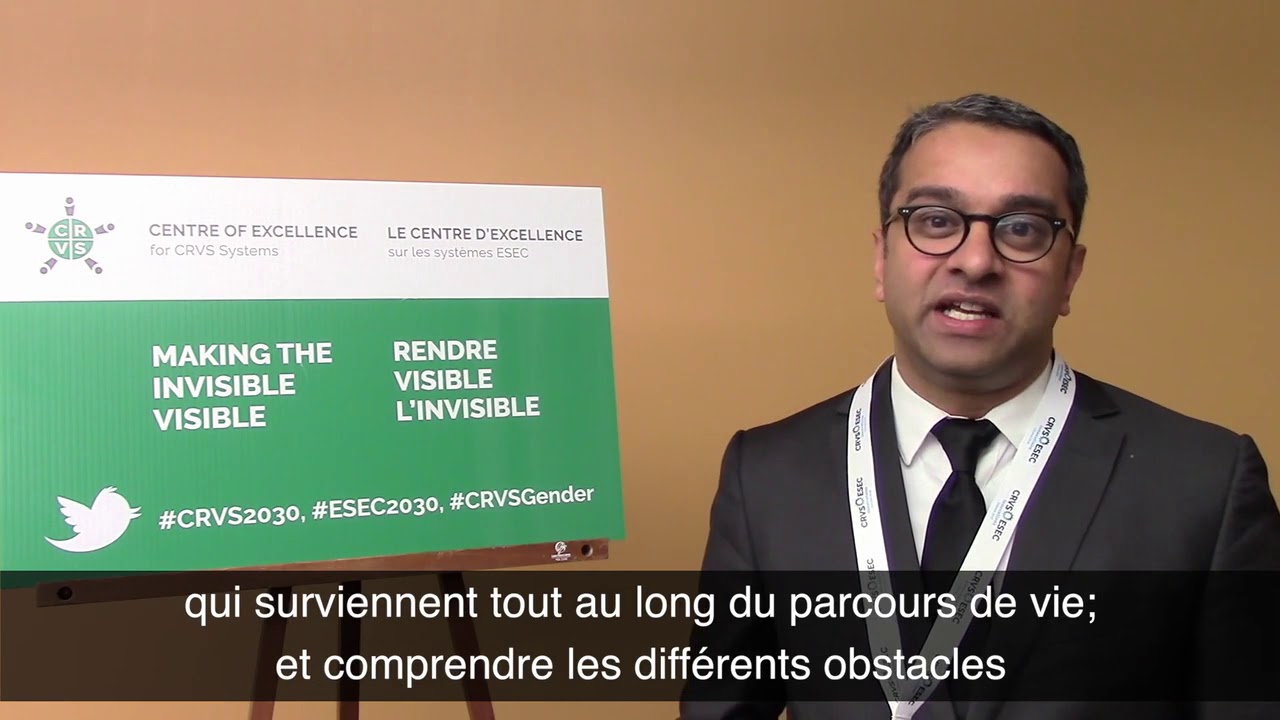Making the Invisible Visible
On February 26, 2018, the Centre of Excellence and its partners organized a high-level panel and technical consultation sessions under the theme, Making the invisible visible: CRVS as a basis to meeting the 2030 Gender Agenda. Find out why CRVS systems are essential to protecting the rights and meeting the needs of women and girls by reading the meeting report, and watching the video series of the proceedings!
Making the Invisible Visible
On February 26, 2018, the Centre of Excellence and its partners organized a high-level panel and technical consultation sessions under the theme, Making the invisible visible: CRVS as a basis to meeting the 2030 Gender Agenda. Find out why CRVS systems are essential to protecting the rights and meeting the needs of women and girls by reading the meeting report, and watching the video series of the proceedings!
-
1:08:11Technical session 2: Planning and implementation In this video, presenters discuss CRVS and gender in the context of the 2030 sustainable development goals. To achieve gender equality and empower women, it is critical to have data that is reliable, timely, and disaggregated by age and sex. The data must also capture limitations on women's rights and inequalities affecting their rights. Only then will data serve to guide better policies and programs, particularly for the underserved and hard to reach. Featuring Jenna Slotin, Global Partnership for Sustainable Development Data; Tanja Suvilaakso, Plan International Canada; Sarah Hendriks, Bill and Melinda Gates Foundation; and Kristen Wenz, United Nations Children’s Fund. Moderated by Shaida Badiee, Open Data Watch.
-
20:50Concluding remarks: Moving the CRVS-gender agenda forward In this video, Irina Dincu (IDRC) and Shaida Badiee (Open Data Watch) highlight key points from the day’s sessions, and moderate a discussion on key take away messages and next steps to move the CRVS-gender agenda forward.
-
1:15:18Welcome Remarks – Counting women and girls In this video, high level guests provide introductory remarks on the importance of registering and counting the vital events of women and girls. Celina Caesar-Chavannes, Parliamentary Secretary to Canada’s Minister of International Development and La Francophonie, reminded the audience of the importance of gender inclusivity in all aspects of development: “If you want to eliminate poverty, empower women. If you want to achieve peace, involve women. And if you want to achieve economic growth, invest in women." Other speakers are Jean Lebel, IDRC; Shamshad Akhtar, United Nations Economic and Social Commission for Asia and the Pacific; Josie B. Perez, Philippine Statistics Authority; and Jean Louis Ville, European Commission.
-
1:35:00High Level Panel – Gender and CRVS In this high level panel, presenters discuss the role of UN agencies, donors, regional organizations and national governments in closing gaps in gender equality. Strengthening CRVS systems is not only an issue of improving the data, but also includes improving the systems and processes that produce the data to ensure more use and impact. Speakers are Rachel Snow, United Nations Population Fund; Francesca Perucci, United Nations Department of Economic and Social Affairs; Haishan Fu, World Bank; Oliver Chinganya, United Nations Economic Commission for Africa; and Jaime Bulande Guta, Mozambique. Moderated by IDRC’s Montasser Kamal.
-
1:14:28Technical session 1 – Research and strategy In this technical consultation session, speakers discuss priority areas for research, such as data gaps on marriage registration and death registration by sex, as well as knowledge gaps on the proximate constraints women may face. More detailed and systematic research on the benefits of CRVS systems, assessments of CRVS systems, and the factors influencing access to registration are needed to develop an appropriate knowledge base to support effective policy making and impact. Presenters are Mayra Buvinic, Data2X; Josie B. Perez, Philippine Statistics Authority; Shaida Badiee, Open Data Watch on behalf of Papa Seck, UN Women; Martin W. Bratschi, Deputy Director, Technical Implementation for CRVS Improvement Program, Vital Strategies; and Romesh Silva, United Nations Population Fund. Moderated by IDRC’s Irina Dincu.
Interview series from CRVS Innovations Conference
Interview series from CRVS Innovations Conference
-
0:50Martin Bratschi, Vital Strategies, on CRVS systems Martin Bratschi, Deputy Director of the Technical Implementation for the CRVS Improvement Program at Vital Strategies, responds to the question “What would CRVS systems look like in an ideal future?”
-
1:32Dimitri Sanga, UNECA, on CRVS systems Dimitri Sanga, Director of the Regional Office for West Africa of the United Nations Economic Commission for Africa (UNECA), on CRVS systems
-
0:46Mireille Gomes, University of Toronto, on CRVS systems Mireille Gomes, Associate Director of Strategy and Innovation at the Centre for Global Health Research at St. Michael’s Hospital and University of Toronto, responds to the question “What are the biggest obstacles facing CRVS systems in 2018? And what are your recommendations for overcoming these?”
-
1:20John Grove, World Health Organisation, on CRVS systems John Grove, Director of the Department of Information, Evidence and Research (IER) in the Metrics and Measurement Cluster of the World Health Organisation, responds to the question “What would CRVS systems look like in an ideal future?”
-
1:01Mirkka Mattila, UNICEF WCARO, on CRVS systems Mirkka Mattila, Regional Child Protection Specialist in charge of CRVS in UNICEF West and Central Africa Regional Office, responds to the question “What are the biggest obstacles facing CRVS systems in 2018? And what are your recommendations for overcoming these?”
-
2:06Laetitia Bazzi-Veil, UNICEF Senegal, on CRVS systems Laetitia Bazzi-Veil, Chief of the Child Protection Section at UNICEF Senegal, responds to the question “What would CRVS systems look like in an ideal future?”
-
1:47Prabhat Jha, University of Toronto, on CRVS systems Prabhat Jha, Endowed Professor in Global Health and Epidemiology at the University of Toronto and the founding Director of the Centre for Global Health Research, responds to the question “What are the biggest obstacles facing CRVS systems in 2018? And what are your recommendations for overcoming these?”
-
4:14Alexandre Marie Yomo, National Civil Status Registration Office of Cameroon, on CRVS systems Alexandre Marie Yomo, Director General of the National Civil Status Registration Office of Cameroon, responds to the question “Why are CRVS systems important now?”
-
1:47Srdjan Mrkić, United Nations Statistics Division, on CRVS systems Srdjan Mrkić, Chief of Demographic Statistics in the United Nations Statistics Division, responds to the question “Why are CRVS systems important now?”
-
1:08Anita Ingabire, UNICEF Guinea, on CRVS systems Anita Ingabire, Chief of the Child Protection Section at UNICEF Guinea, on CRVS systems
-
2:57Lina Msanga, Registration Insolvency and Trusteeship Agency (RITA) in Tanzania, on CRVS systems Lisa Msanga, Acting Director for Legal Rights Protection at the Registration Insolvency and Trusteeship Agency (RITA) in Tanzania, on CRVS systems
-
1:34Christopher MacLennan, Global Affairs Canada, on CRVS systems Christopher MacLennan, Assistant Deputy Minister for Global Issues and Development at Global Affairs Canada, on CVRS systems
CRVS Innovations Conference
Held February 27 to 28, 2018 in Ottawa, Canada, and co-organized by the Centre of Excellence for CRVS Systems, the United Nations Children's Fund (UNICEF) and the World Health Organization (WHO), the two-day CRVS Innovations Conference convened participants from across sectors, disciplines, and regions to identify how best to harness the global momentum for strengthening CRVS systems to meet commitments to the 2030 Sustainable Development Agenda. We invite you to read the conference report, and watch the video series of the recordings.
CRVS Innovations Conference
Held February 27 to 28, 2018 in Ottawa, Canada, and co-organized by the Centre of Excellence for CRVS Systems, the United Nations Children's Fund (UNICEF) and the World Health Organization (WHO), the two-day CRVS Innovations Conference convened participants from across sectors, disciplines, and regions to identify how best to harness the global momentum for strengthening CRVS systems to meet commitments to the 2030 Sustainable Development Agenda. We invite you to read the conference report, and watch the video series of the recordings.
-
1:23:10Closing plenary Feb 28 – putting it all together In this video, participants discuss strategic areas of interest and agree on priorities for further development, through the conference declaration. WHO and UNICEF announce a new partnership to strengthen CRVS systems.
-
1:24:16Panel session 5 – The role of unique identification systems Sustainable Development Goal 16.9 is to provide legal identity for all, including birth registration, by 2030. Yet, 1.1 billion people worldwide are unable to prove their legal identity, and thus lack access to social services including health care, education, social protection, and finance. This video provides a global overview of basic principles to achieving integration between civil registration and civil identity systems, to close the invisibility gap and reduce inequities. Featuring Samuel Mills, World Bank Group (moderator); Sanjay Dharwadker, WCC Consulting EMEA; Nasser Jeeanody, Ministry of Health, Mauritius; Minah Kang, Ewha Woman’s University, Korea; and Martina Zorko-Kodelja, Health Insurance Institute of Slovenia.
-
1:34:37Opening plenary Feb 28 – gender and emergencies Moderated by Dimitri Sanga (UNECA sub-regional office for West Africa), this high level plenary session discusses the challenges of registering vital events and securing identity documents in conflict and emergency situations, particularly for women and girls. Speakers include Cornelius Williams, UNICEF; Shaida Badiee, Open Data Watch; Rikke Munk Hansen, UNESCAP; Oliver Chinganya, UNECA; Josie B. Perez, Philippine Statistics Authority; Jean-Louis Ville, European Commission and Anir Chowdhury, Prime Minister's Office, Government of Bangladesh.
-
1:28:02Panel session 6 – Legal framework and protection of identities Death registration, unlike birth registration is not enshrined in international human rights laws. The implication of this is key, particularly for women and other vulnerable groups in disaster and post-conflict settings. The video discusses the importance of a holistic approach in developing legal frameworks for the civil registration, vital statistics and identity management systems. Featuring Jacqueline Bhabha, Harvard T.H. Chan School of Public Health (moderator); Srdjan Mrkić, UNSD; Philip Setel, Vital Strategies; Claire Brolan, University of Toronto; and Zoran Đoković, OSCE-ODIHR.
-
1:47:48Opening plenary Feb 27 – the global significance of CRVS Systems In this video, high level guests discuss the global significance of CRVS systems, and their importance for the 2030 sustainable development agenda. Speakers are Christopher MacLennan, Assistant Deputy Minister, Global Affairs Canada, Jean Lebel, IDRC, John Grove, WHO; Anil Arora, Statistics Canada; Haishan Fu, World Bank; Srdjan Mrkic, UNSD; Alexandre Marie Yomo, Cameron; and Jaime Balunde Guta, Mozambique.
-
1:24:07Panel session 7 – Health in the context of inclusive development Well-functioning CRVS systems have direct benefits for individuals and for policy-making processes that use vital statistics, but also contribute to improved population health outcomes. This video highlights case examples of how the health sector can contribute to improving CRVS systems. Featuring Anshu Banerjee, WHO and Debra Jackson, UNICEF (moderators); Debra Jackson, UNICEF; Maletela Tuoane-Nkhasi, Global Financing Facility, World Bank; Boonchai Kijsanayotin, Ministry of Public Health, Thailand; Bhaskar Mishra, UNICEF Tanzania; Kathryn Banke, Bill and Melinda Gates Foundation; Sana Naffa, IDRC.
-
1:34:04Panel session 1 – Inclusive development This video discusses how CRVS systems, in conjunction with other systems, build the backbone of inclusive development through facilitating citizen participation and access to government services such as health and social protection.
Featuring Oliver Chinganya, UNECA (moderator); Jonathan Marskell, World Bank; Amitabh Suthar, US Centres for Disease Control and Prevention; Laetitia Bazzi-Veil, UNICEF Senegal; Kristen Wenz, UNICEF HQ; Rikke Munk Hansen, UNESCAP. -
1:21:10Panel session 8 – Contemporary examples in improving civil registration and vital statistics systems This video highlights several important aspects of CRVS systems improvements, and presents experiences from countries and partners in implementing and using a vital statistics system. Speakers include Srdjan Mrkić, UNSD; Ani Mkhitaryan, Ministry of Justice, Republic of Armenia; Omrana Pasha, Johns Hopkins Bloomberg School of Public Health; Romesh Silva, UNFPA; Josie B. Perez, Philippine Statistics Authority; and Vibeke Nielsen, Statistics Norway.
-
1:39:20Panel session 2 – Human centred design, including demand creation While the focus for recent CRVS activity and momentum has been on improvement of data and systems, equal attention needs to be placed on generating demand. This video discusses the barriers and challenges for demand through human-centered interaction with CRVS systems. Featuring Raj Mitra, Independent Consultant (moderator); Vibeke Nielsen, Statistics Norway; Gloria Mathenge, Pacific Community; Bhaskar Mishra, UNICEF Tanzania and Ashfaqul Amin Mukut, Government of Bangladesh.
-
1:25:49Panel session 9 – Digital innovations and scaling This video features case studies and country examples illustrating how new technologies are being used to bring identity and economic opportunities to the poorest and most vulnerable communities. Speakers are Martin Bratschi, Vital Strategies; Murodillo Latifov, Independent Management Consultant; Jane Thomason, Abt Australia; Claudine Henry-Anguna, Cook Islands; and Dakota Gruener, ID2020.
-
1:47:54Panel session 3 – CRVS innovations in conflict and emergency settings This video highlights the problems countries face registering the life events – births, deaths, marriages, divorces, for example – of those in emergency situations. Panelists provide good practical examples of how to address this challenge using human-centred approaches. Speakers are Mirkka Mattila, UNICEF WCARO (moderator); Marwan Khawaja, UNESCWA; Dimitri Sanga, UNECA sub-regional office for West Africa; Nicholas Oakeshott, UNHCR; and Fodé Oumar Touré, Guinea.
-
22:49Closing plenary - February 27 This video highlights key take aways on the importance of CRVS systems for inclusive development and social protection in the context of the 2030 sustainable development agenda.
-
1:28:21Panel session 4 – Social protection in the context of inclusive development CRVS systems play a critical role in supporting social protection including, bridging the gap for the most vulnerable, and distributing the dividends of increased prosperity fairly across society. Good governance is an important element of CRVS systems for social protection. It underpins several of the core benefits of civil registration systems, including access to services. Presenters are Mia Harbitz, Independent Consultant (moderator); Andrei Gheorghe, Ministry of Justice, Romania; Ivan Arcos Axt, Policy Advisor to the Minister General Secretary of the Presidency, Chile; Anette Bayer Forsingdal, Ministry of Home Affairs and Immigration, Namibia; and Arjan de Haan; IDRC.
Webinar Recordings
Webinar Recordings
-
1:36:20The Nexus Between Civil Registration and Social Protection Systems This video is a recording of a webinar that took place on September 10, 2020. Organized by the Centre of Excellence for Civil Registration and Vital Statistics (CRVS) Systems and the Global Partnership for Sustainable Development Data (GPSDD), it presents the findings from the publication The Nexus Between Civil Registration and Social Protection Systems: Five Country Practices and highlights lessons learned from Tunisia and Namibia.
-
1:33:57How links between civil registration and social protection systems can help respond to COVID-19 This video is a recording of a webinar that took place on September 22, 2020. Organized by the Centre of Excellence for Civil Registration and Vital Statistics (CRVS) Systems and the Global Partnership for Sustainable Development Data (GPSDD), it presents the findings from the publication The Nexus Between Civil Registration and Social Protection Systems: Five Country Practices. Two of the country studies featured in the compendium, Argentina and South Korea, offer insights into the role that integrated civil registration and social protection systems can play in strengthening national responses to the COVID-19 pandemic.
-
1:16:02Visualizing the Invisible: Registering deaths and tracking mortality in the era of COVID-19 In this World Data Forum 2020 session, learn from country experiences in counting deaths and tracking mortality during a health emergency such as COVID-19. Organized by Vital Strategies, the World Health Organization (WHO), and the Centre of Excellence for Civil Registration and Vital Statistics (CRVS) Systems.
-
1:12:31Data for Development: Towards a More Integrated Agenda from the Global South This video is a recording of IDRC's pre-recorded discussion for the World Data Forum 2020. The presentations and discussions focus on overcoming research silos and ensuring that coordinated perspectives and research from the Global South informs holistic approaches to data governance, innovation, and use. Included is a presentation from Romesh Silva, senior technical specialist, United Nations Population Fund who leads a Centre of Excellence-supported project to build a culture of vital statistics production and use.
-
1:13:14Introduction to CRVS and identity management systems This video is a recording of a webinar that took place on December 4, 2019. Organized by the Centre of Excellence and the Global Partnership for Sustainable Development Data (GPSDD), it focuses on civil registration, vital statistics, and identity management systems. Presentations and discussions focus on what these systems are, and why they are important. This webinar was the second installment in GPSDD's webinar series "The power of population data: data of the people, by the people, for the people to achieve Agenda 2030", a series intended to spark interest and share knowledge on the importance of population data.
-
1:20:55Overview of findings from the new Compendium of Good Practices in Linking CRVS and ID Management Systems This video is a recording of a webinar that took place on December 12, 2019. Organized by the Centre of Excellence and the Global Partnership for Sustainable Development Data (GPSDD), it introduces the key findings of a new publication (please see www.CRVSsystems/IDCompendium). This webinar was the third installment in GPSDD's webinar series "The power of population data: data of the people, by the people, for the people to achieve Agenda 2030", a series intended to spark interest and share knowledge on the importance of population data.
Connecting Vital Events Registration and Gender Equality (ConVERGE) Conference
The conference Connecting Vital Events Registration and Gender Equality (ConVERGE) took place at the International Development Research Centre (IDRC) in Ottawa, Canada February 25 and 26, 2020. Co-organized by the Centre of Excellence for CRVS Systems, Open Data Watch, and the United Nations Population Fund (UNFPA), it aimed to move discussions beyond the importance of CRVS systems for women and children, towards agreeing to promote and support action-oriented solutions and further research investments. See our event page for more information.
Connecting Vital Events Registration and Gender Equality (ConVERGE) Conference
The conference Connecting Vital Events Registration and Gender Equality (ConVERGE) took place at the International Development Research Centre (IDRC) in Ottawa, Canada February 25 and 26, 2020. Co-organized by the Centre of Excellence for CRVS Systems, Open Data Watch, and the United Nations Population Fund (UNFPA), it aimed to move discussions beyond the importance of CRVS systems for women and children, towards agreeing to promote and support action-oriented solutions and further research investments. See our event page for more information.
-
1:01:42Setting Commitments and Inspiring Action In this reflection session, speakers presented a series of action-oriented messages for conference participants to discuss and debate. The draft messages were developed by the conference co-organizers to serve as possible outcome messages aimed at catalyzing actions by the community of practice to ensure CRVS Systems Leave No One Behind. In order of appearance, presenters are:
• Arjan de Haan, Director, Inclusive Economies, IDRC
• Irina Dincu, Senior Program Specialist, Centre of Excellence for CRVS Systems
• Shaida Badiee, Managing Director, Open Data Watch
• Moderated by Montasser Kamal, Program Leader, Maternal and Child Health, IDRC -
1:43:09How Social Norms and Legal Frameworks Impact Vital Events Registration In this technical session, speakers discuss how social norms and legal frameworks impact the civil registration of women and children. In order of appearance, presenters are:
• Sandile Simelane, Technical Specialist, UNFPA
• Louis Niamba, Researcher, Burkina Faso
• Dan Pavel Doghi, Chief of the CPRSI at OSCE Office for Democratic Institutions and Human Rights
• Claire Brolan, Centre for Policy Future, University of Queensland
• Leyla Sharafi, Senior Gender Advisor, UNFPA
• Moderated by Irina Dincu, Senior Program Specialist, Centre of Excellence for CRVS Systems, IDRC -
1:30:34CRVS Systems in Conflict, Emergencies, and Heavy Migration Situations In this technical session, speakers explore how CRVS systems in conflict, emergency or migratory zones impact women and children and their legal rights and protections. In order of appearance, presenters are:
• Elène Bérubé, Senior Legal Officer and Head of Protection Unit, UNHCR
• Rosalinda C. Apura, Regional Director, Philippine Statistics Authority
• Martin Clutterbuck, Counselling and Legal Assistance Regional Advisor, Norwegian Refugee Council Middle East Region
• Allison Petrozziello, Gender & Migration Specialist, Researcher and PhD Candidate
• Marwan Khawaja, Chief, Demographic and Social Statistics Section, UNESCWA
• Moderated by Rachel Snow, Chief, Population and Development, Technical Division, UNFPA -
1:55:23The Current State of CRVS Systems for Gender Equality In this high-level panel, keynote speaker, Petrider Paul, African Union Youth Ambassador, addresses her work on gender equality and participation in advocacy of girl’s rights and social change. Her remarks are followed by a moderated panel discussion that includes the following speakers (in order of appearance):
• Cornelius Williams, Associate Director, Child Protection, UNICEF
• Dominique Charron, Vice-President, IDRC
• Shaida Badiee, Managing Director, Open Data Watch
• Benoit Kalasa, Director, Technical Division, UNFPA
• Moderated by Montasser Kamal, Program Leader, Maternal and Child Health, IDRC -
53:55Integrating Gender Dimensions into CRVS and Legal Identity Initiatives In this session, speakers explore the integration of gender dimensions in global and regional CRVS and legal identity initiatives. In order of appearance, presenters are:
• Niall McCann, Policy Advisor and Project Manager, Legal ldentity, UNDP
• Srdjan Mrkic, Demographic Statistics Section, UN Statistics Division
• Gemma Van Halderen, Director, Statistics Division, UNESCAP
• Tom Orrell, Director, DataReady
• Moderated by Romesh Silva, Senior Technical Specialist, UNFPA. -
44:25Welcome Remarks and Keynote Address In this opening session, speakers introduce conference themes and discuss the importance of Civil Registration and Vital Statistics (CRVS) Systems for gender equality. In order of appearance, speakers are:
• Montasser Kamal, Program Leader, Maternal and Child Health, IDRC
• Dominique Charron, Vice-President, International Development Research Centre,IDRC
• Benoit Kalasa, Director, Technical Division, United Nations Population Fund (UNFPA)
• Joshua Tabah, Director General of Health and Nutrition, Global Affairs Canada -
57:24Exploring Gender Dimensions of Health and CRVS Systems In this session, speakers explore the gender dimensions of health and CRVS systems. In order of appearance, presenters are:
• Carlos Ramirez, UNFPA Colombia and Edna Valle, DANE, Colombia
• Montasser Kamal, Program Leader, Maternal and Child Health, IDRC
• Daniel Cobos, Senior Scientific Collaborator, Swiss Tropical and Public Health Institute
• Nashaat Taani, Director, Mortality Statistics, Ministry of Health, Jordan
• Moderated by Benoit Kalasa, Director, Technical Division, UNFPA -
27:59Moving the CRVS Gender Agenda Forward In this concluding session, speakers reflect on key action items discussed throughout the conference and commitments to moving the agenda on CRVS and gender forward. In order of appearance, presenters are:
• Shaida Badiee, Managing Director, Open Data Watch
• Irina Dincu, Senior Program Specialist, Centre of Excellence for CRVS Systems
• Arjan de Haan, Director, Inclusive Economies, IDRC
• Benoit Kalasa, Director, Technical Division, United Nations Population Fund (UNFPA)
• Joshua Tabah, Director General of Health and Nutrition, Global Affairs Canada -
12:01Remarks by Parliamentary Secretary Kamal Khera In this session, Parliamentary Secretary to Canada’s Minister of International Development, Kamal Khera, speaks to the importance of CRVS systems. She is introduced by Dominique Charron, Vice-President, Programs and Partnerships, IDRC.
Interview series from Making the Invisible Visible
Interview series from Making the Invisible Visible
-
1:34Shamshad Akhtar, UNESCAP, on gender and CRVS systems Shamshad Akhtar, Undersecretary-General of the United Nations Economic and Social Commission for Asia and the Pacific (UNESCAP), responds to the question “Why are CRVS systems important when talking about gender equality?”
-
2:57Francesca Perucci, United Nations Statistics Division, on gender and CRVS systems Francesca Perucci, Assistant Director United Nations Statistics Division, responds to the question “What steps do you think need to be taken to make vulnerable groups – such as women and girls – ‘visible’?”
-
1:27Josie B. Perez, Philippine Statistics Authority, on gender and CRVS systems Josie B. Perez, Deputy National Statistician at the Philippine Statistics Authority, responds to the question “How do data and statistics impact the lives of women and girls?”
Making the Invisible Visible: CRVS as a basis to meeting the 2030 Gender Agenda
February 26, 2018 -
1:10Jean-Louis Ville, European Commission, on gender and CRVS systems Jean-Louis Ville, Head of Unit for Gender Equality, Human Rights and Democratic Governance at the European Commission, responds to the question “How do data and statistics impact the lives of women and girls?”
-
0:34Mayra Buvinic, Data2x, on gender and CRVS systems Mayra Buvinic, Senior Fellow at Data2x, responds to the question “Why are CRVS systems important when talking about gender equality?”
-
2:20Oliver Chinganya, UNECA, on gender and CRVS systems Oliver Chinganya, Director of the African Centre for Statistics at the United Nations Economic Commission for Africa (UNECA), responds to the question, “How do data and statistics impact the lives of women and girls?”
-
2:03Rachel Snow, UNFPA, on gender and CRVS systems Rachel Snow, Chief for Population and Development Branch of the United Nations Population Fund (UNFPA), responds to the question “Why are CRVS systems important when talking about gender equality?”
-
1:41Romesh Silva, UNFPA, sur le genre et les systèmes d'ESEC Romesh Silva, Technical Specialist for Health and Social Inequalities in the Population and Development Branch of the United Nations Population Fund (UNFPA), of the responds to the question “What steps do you think need to be taken to make vulnerable groups – such as women and girls – ‘visible’?”
Gender Speaker Series
Gender Speaker Series
-
1:10Gender data and civil registration: The path to equality The Centre of Excellence for CRVS Systems brought together experts in CRVS, gender equality, and data for a thought-provoking conversation about how CRVS systems can promote gender equality and sustainable development. This event is part of IDRC’s Gender Speaker Series.
The speakers are Arjan de Haan, Director, Inclusive Economies, IDRC; Montasser Kamal, Program Leader, Maternal and Child Health, IDRC; Sandile Simelane, Technical Specialist, United Nations Population Fund (UNFPA); Deirdre Appel, Program Manager, Open Data Watch; and Eleanor Carey, Technical Manager, Data 2X.
Capturing Who We Are: CRVS and Identity to Leave No One Behind
Capturing Who We Are: CRVS and Identity to Leave No One Behind
-
1:39:28Capturing Who We Are: CRVS and Identity to Leave No One Behind On September 26, 2019, the Centre of Excellence, UN DESA Statistics Division, and the Global Partnership for Sustainable Development Data (GPSDD) co-hosted a side event during the 74th Session of the UN General Assembly. Legal identity for all – including women, children, and other vulnerable groups – is critical for achieving the Sustainable Development Goals. CRVS systems are a foundation for legal identity and present opportunities for ensuring no one is left behind. High-level and expert speakers emphasized the need to drive forward rights-based CRVS systems and discussed the benefits of a holistic approach to civil registration, vital statistics, and identity management systems.
